- Medicines on the plane – how to transport?...
- Tourist tax in Croatia. Climate change fee
- Tourist tax in Portugal. Climate change fee
- Electrical outlets in Gran Canaria. Electricity Information

- Dominican Republic
- Canary Islands
- United Arab Emirates
- Where to go?
Benqu News & Blog WordPress Theme


Medicines on the plane – how

Tourist tax in Croatia. Climate change

Tourist tax in Portugal. Climate change

Electrical outlets in Gran Canaria. Electricity
Makuszyńskiego 99B, 42-208 Częstochowa
Tourist tax in Tenerife
- BY Simon Machniewski

Tourists traveling to the Canary Islands often hear about the need to pay a tourist tax. However, there are no such fees on Tenerife, unlike on Spain’s other island, the Balearic Islands. The tourist tax in Spain was introduced in July 2016.
It is an additional fee charged to tourists. The tax is charged for each day of stay, throughout the year, and tourists pay it along with their accommodation bill. However, it is worth remembering that the tourist tax is not included in the price of the room only increases this cost by a certain rate. For example, the tourist tax in Mallorca is 2 euros per day for a stay in a three-star hotel. Taxes make it possible to maintain tourist infrastructure and protect valuable nature.

What kind of tourist tax is paid in Tenerife?
The obligation to pay tourist tax does not apply to Tenerife, as it does to the entire Canary Islands archipelago. There have been plans to do so, but at present no additional fees are charged to tourists in Tenerife. There are also no government projects to change this, so that tourists going to Tenerife do not have to pay more for their vacation.

Hotels with a coral reef in Egypt. Best hotels for snorkeling
What to pack for a holiday to gran canaria what to take what kind of clothes.

- Simon Machniewski
About Author
Traveler and owner of a small marketing agency.
You may also like

Gran Canaria – what’s worth seeing? Best places to visit. Top attractions

Winter in Gran Canaria
A complete guide to the Tourist Tax in Spain: What it is, who must pay it and what are the consequences of non-compliance.
- Post author By Valery Saavedra
- Post date 08/08/2023
- No Comments on A complete guide to the Tourist Tax in Spain: What it is, who must pay it and what are the consequences of non-compliance.
What is the Tourist Tax in Spain?
The Tourist Tax in Spain is a tax applied in certain tourist destinations, with the main purpose of financing conservation and sustainability projects . It is characterised by the fact that it is an economic contribution that visitors make during their stay, aimed at maintaining and protecting the natural and cultural environment of the place.
The money collected through the Tourist Tax is directly invested in actions that promote environmental conservation and sustainability. This can range from the protection of natural areas, to projects to improve energy efficiency or promote the use of renewable energies.
Tourist Tax plays a crucial role in promoting responsible tourism . By paying it, travellers contribute to the care and preservation of the natural and cultural resources of the destination they visit. It raises awareness of the environmental impact of tourism and encourages visitors to adopt more environmentally friendly behaviour.
Where is the Tourist Tax paid in Spain?
The tourist tax, also known as ecotax , is applied in several regions of Spain. However, two prominent tourist destinations where this tax is levied are Catalonia and the Balearic Islands .
In Catalonia , the implementation of the tourist tax became effective from 2012. Visitors must pay a fee that varies depending on the category of accommodation and location. It ranges from 0.60 euros to 3.50 euros per night and person.
On the other hand, in the Balearic Islands , the Tourist Tax was introduced in 2016. Here, the amount to be paid depends on the season (high or low) and the type of accommodation, ranging from 0.25 euros to 2 euros per night and person in high season.
As for how this tax is paid, in both regions it is generally collected at the end of the stay, being the responsibility of the establishment to collect it and its subsequent declaration to the tax authorities.
It is important to bear in mind that each Spanish autonomous community has its own rules and rates with regard to the Tourist Tax, so it is always advisable to find out more before travelling.
Thus, although both Autonomous Communities (Catalonia and Balearic Islands) charge a tourist tax, there are significant differences in terms of how much and how it is paid . At Chekin, we are well-aware that calculating tourist taxes is a complex and tedious process. There are many parameters involved that vary between regions and countries. But don’t worry, our software calculates them automatically for you .
What VAT is levied on the tourist tax?
The Tourist Tax , also known as ecotax, is subject to a value added tax (VAT) in Spain. This tax has a tax rate of 10% . This means that 10% of the total amount of the tourist tax goes to VAT .
It is important to note that this VAT is not added to the amount of the Tourist Tax, but is included in the final amount paid by the tourist. For example, if the Tourist Tax is 2 euros per night in an accommodation, the VAT would be 0.20 euros.
This percentage of VAT on the Tourist Tax is fixed and does not vary according to factors such as the type of accommodation or the season. In fact, it is applied uniformly to all transactions related to the tourist tax.
Payment of VAT is compulsory and non-compliance may lead to penalties. As with the Tourist Tax itself, it is the responsibility of the accommodation owner to collect this VAT and remit it to the tax administration.
Which cities have a tourist tax?
In Spain , several cities and regions have implemented the tourist tax to finance sustainability and conservation projects. In Catalonia, the cities of Barcelona, Girona, Tarragona and Lleida apply this tax to visitors. Each city has its own charging system and rates vary depending on the type of accommodation and the season. You can find our legal guide for Catalonia to make sure your property meets all requirements such as Tourist Taxes.
The Balearic Islands have also adopted the ecotax . In this case, Palma de Mallorca, Ibiza and Menorca are destinations where this tax is charged to tourists. As in Catalonia, the rates may depend on the type of accommodation and the season.
It is important to note that the money collected through the tourist tax is used to finance projects that seek to preserve the environment and promote more sustainable tourism in these regions. In the following section, we will focus on who is obliged to pay this tax.
How can I automate the Tourist Tax collection process?
To facilitate the collection of the ecotax, there are tools that allow you to automate this process . One of these is Chekin , a digital platform that allows you to manage guest registration and payments, including the collection of ecotax. This tool is especially useful if you manage multiple properties or if you don’t live close to your holiday properties to be able to do it remotely.
With Chekin , you can:
- Automate the Tourist Tax calculation based on guest data and local regulations.
- Ask your guests to pay the tourist tax during online check-in.
- Manage your collections and collect the tourist tax in an automated way thanks to Chekin .
Adopting this technological solution can save you time and avoid errors in the calculation and collection of the ecotax . Remember, it is not only about complying with your tax obligations, but also about contributing to sustainable tourism.
Who has to pay the Tourist Tax in Spain?
The payment of the Tourist Tax in Spain is an obligation for all tourists over 16 years of age who stay in tourist establishments, from hotels to tourist flats, campsites and cruises. Even those who stay overnight in their private boat in the waters of the Balearic Islands are subject to this tax.
There are specific categories of individuals and entities that are obliged to pay. Owners of tourist establishments are responsible for collecting the Tourist Tax from their guests and transferring it to the government.
However, there are some exceptions as to who is exempt from paying the Tourist Tax. For example, persons with a recognised disability of 33% or more and their companions, children under the age of 16, people travelling for work purposes, or those in urgent or emergency situations are exempt from payment.
There are also specific situations where the Tourist Tax is not required. If an individual stays for a long period (more than 20 consecutive days) in the same establishment, the days from the 20th day onwards are exempt from payment.
Thus, it is important to be aware of the rules and regulations regarding the payment of the ecotax to avoid any inconvenience during your stay. Tourist Taxes by Chekin calculates the tourist rates for any place in the world, automatically meeting the official requirements of your country or region.
How much is the Tourist Tax? Amount at each site and exceptions
The ecotax, also known as tourist tax , varies depending on the location and type of accommodation. In Catalonia, for example, the amount can range from €0.60 to €3.50 per person per night, while in the Balearic Islands the amount can be as much as €2 per night.
There are certain exceptions to this general rule:
- Children under the age of 16 are exempt from this fee.
- In the Balearic Islands, during the low season (November to April), a 50% discount applies.
- Long term accommodation: if the stay exceeds 12 days, a 50% discount will be applied from the 13th day onwards.
These amounts serve as a reference to understand how much the Tourist Tax could be. However, it is crucial to consult updated local rates to get an accurate figure and to be aware of any changes in exceptions or discounts.
What happens if I do not pay the Tourist Tax?
Failure to pay the Tourist Tax can lead to severe legal consequences . It is important to understand that this tax is not optional, but a legal duty for certain tourists and accommodation establishments.
Penalties or fines vary depending on the location and the seriousness of the infraction. For example, in the Balearic Islands, the fine can be up to 400,000 euros for tour operators who do not charge the Tourist Tax. In Catalonia, fines can be equally high for those who evade this tax. Moreover, repeated non-compliance can lead to additional restrictions and possible legal action. One notable case is that of a hotel in Mallorca that was forced to close for five days for non-payment of the Tourist Tax.
It is crucial to understand the importance of compliance with the Tourist tax , also known as ecotax, not only to avoid legal sanctions, but also to contribute to the sustainable development of tourist regions.
When is Tourist Tax levied?
The specific time at which the Tourist Tax is charged may vary depending on the location. Generally, this fee is charged at check-in or upon arrival at the accommodation. However, in some cases, it may be included in the total price when booking.
In relation to tax administration, the collection and management of the Tourist Tax is carried out by the relevant local authorities. These funds are then transferred to the treasury and earmarked for conservation and sustainable projects.
The funds raised through the ecotax play a crucial role in financing sustainable and conservation projects. These projects can address a variety of issues important to the local community, such as the conservation of protected natural areas, improvements to tourism infrastructure or environmental education programmes.
How much is the tourist tax in Catalonia?
The tourist tax in Catalonia varies depending on the type of accommodation and the season. For a 5-star hotel, the rate is 3.50 euros per night during the high season. In the case of tourist flats, you pay 2.25 euros per night all year round.
It is important to note that this amount collected is used to finance projects linked to sustainable tourism in Catalonia . These can range from the preservation and improvement of natural and cultural spaces to initiatives to promote responsible tourism.
This tourism tax model seeks to balance the impact of tourism with the benefits it brings to the region. It ensures that each visitor contributes directly to maintaining and enhancing the unique and attractive features of Catalonia that have led to its choice as a destination.
How much tourist tax do you pay in the Balearics?
If you plan to visit the beautiful Balearic Islands, it is important to be aware of the tourist tax you will have to pay. The specific amount varies according to the season and type of accommodation. In high season (May to October), five-star hotels and four-star superior accommodation charge a daily rate of €4.00 per person, while holiday homes charge €2.00. During the low season, these rates are halved.
It is worth mentioning that these funds raised are used to promote sustainable tourism and protect the unique natural and cultural heritage of the Balearics. Thus, by paying this fee, you are directly contributing to the conservation of these paradisiacal Spanish destinations.
Who pays the Tourist Tax in Catalonia?
In Catalonia, the tourist tax is the responsibility of visitors over the age of 16. This obligation falls mainly on tourists staying in any type of tourist accommodation establishment, which includes hotels, tourist flats, rural houses, campsites and cruise ships.
It is important to note that there are some exceptions to consider. For example, people staying in tourist accommodation establishments located within the Ebro Delta Natural Park are not subject to this tax.
In addition, guests who prove that they are undergoing medical treatment during their stay are also not obliged to pay it. These details are crucial to understand who is exempt from paying the tourist tax in Catalonia.
Who pays the Tourist Tax in the Balearics?
In the Balearic Islands, the ecotax is a liability that falls mainly on tourists. In general, anyone staying in a registered accommodation establishment, such as hotels, tourist flats and similar places of accommodation, is obliged to pay this tax.
Visitors of all ages are subject to the tax, although there are certain exceptions. For example, Balearic residents staying in a tourist establishment on the islands are not obliged to pay the eco-tax. In addition, children under the age of 16 are also exempt from payment.
In summary, it is essential to understand who is obliged to pay the ecotax in the Balearics to avoid misunderstandings and to ensure compliance with this sustainability-oriented measure.

Privacy Overview

- Tenerife Tourism
- Tenerife Hotels
- Bed and Breakfast Tenerife
- Tenerife Holiday Rentals
- Flights to Tenerife
- Tenerife Restaurants
- Tenerife Attractions
- Tenerife Travel Forum
- Tenerife Photos
- Tenerife Map
- All Tenerife Hotels
- Tenerife Hotel Deals
- Last Minute Hotels in Tenerife
- Things to Do
- Restaurants
- Holiday Rentals
- Travel Stories
- Add a Place
- Travel Forum
- Travellers' Choice
- Help Centre
Tourist tax - Tenerife Forum
- Europe
- Spain
- Canary Islands
- Tenerife
Tourist tax
- United Kingdom Forums
- United States Forums
- Europe Forums
- Canada Forums
- Asia Forums
- Central America Forums
- Africa Forums
- Caribbean Forums
- Mexico Forums
- South Pacific Forums
- South America Forums
- Middle East Forums
- Honeymoons and Romance
- Business Travel
- Train Travel
- Traveling With Disabilities
- Tripadvisor Support
- Solo Travel
- Bargain Travel
- Timeshares / Holiday Rentals
- Canary Islands forums
- Tenerife forum

10 replies to this topic

Can you provide a link to where you read this, please?

No. But there are such taxes in other parts of Spain and Portugal and they may well be introduced in the Canaries in future. In the context of the overall cost of your trip any future tax would be a very small amount.
The British tabloids have reported demos supporting a new tax but according to official sources “There is currently no plan to introduce a Canary Islands Tourist Tax. One of the opposition parties has called for one to be introduced, specifically requesting that it be used for “environmental reasons.”
“But it isn’t being discussed seriously currently, there isn’t a working party looking into the viability of it, and it doesn’t form part of the government’s manifesto.”
There are demonstrations on 5 of the islands taking place on 20th April asking the Government to rethink the tourist model as it stands at the moment because only foreigners can afford to purchase property and homes that were long term rentals have been changed to tourist lets meaning people who live here cannot afford to have homes close to work. Also having to live so far from where they work the infrastructure needs to be improved. A suggestion is to have a tourist tax which could be used to help make improvements to the lives of locals but nothing has been decided. The only thing so far is that any new home that is built will not be approved as a tourist letting until it is 10 years old but even that is still in draft form. Needless to say UK media is getting it all wrong and making it about not wanting Brits but I suppose that gets people to read their rubbish newspapers and watch the likes of GBN
Thank you everyone for explaining it all in great derail
So Alan are you saying the photo in the press of a building with Tourists Go Home painted in it is a fake? And the protesters saying they are going on hunger strike until two tourist projects are cancelled is another fake? Here in UK most, if not all, recognise this as yet another minority group, like JSO etc, trying to impose their agenda on the great majority because they feel so entitled.
I suspect the only ones dim enough to take any notice are the ones you would prefer holidayed somewhere else!!!
By the way I agree with your view of the press (not just UK) but GBN do tend to present the news from apposing views rather than just the way they want it presented like mainstream news programmes.
John F I am not saying either is fake, what I am saying is the reason behind them as reported in the UK news is fake. The graffiti was to make the Canarian Government sit up and take action on the current situation. If you don't know many of the southern resorts are declaring themselves -stressed- areas as they cannot house the homeless even those who are working but because of costs cannot afford rent as property is going to tourists. The comment was written in English because most tourists whatever their nationality speak more than one language but the Brits exceptionalism took it to mean just them.

There are similar problems in Devon and Cornwall.
The way to sort them is build suitable affordable housing directed at the workers who are badly needed to run the hotels and bars etc.
The current hostility shown by a vocal few could grow into a deterrent for visiting tourists.

The problem in Spain and the Canaries is the huge rise in Air B&B pushing prices of property to rediculous levels. Though in my opinion the fact that Spain does not build any social housing for its people is the main problem and always will be until they do something about it
- Aircraft Noise 22:10
- Are sandals suitable for Tenerife? 20:48
- Mediterranean Palace refurb 16:09
- Breakfast/lunch etc 14:04
- Tenerife taxi today
- The Sax Rock Bar today
- Airport Transfer yesterday
- Dialysis tenerife yesterday
- Proof of £97 a day canary islands yesterday
- Pueblo Torviscas yesterday
- Are children allowed in pubs/bars yesterday
- Traditional restaurants yesterday
- Trouble yesterday
- Protests in Tenerife yesterday
- Weather in December 5 replies
- October weather 11 replies
- Best area to stay 3 replies
- Sandos San Blas Hotel 5 replies
- Weather in November 4 replies
- green garden resort aqua package with thomas cook 15 replies
- Weather in Tenerife in February 3 replies
- Thomson turn Gran Melia Palacio into Sensatori Resort. 413 replies
- Tenerife weather - September 2011 44 replies
- Who are Fly.co.uk 112 replies
Tenerife Hotels and Places to Stay
- List of Medical facilities and practitioners in Tenerife
- Where are the Hospitals and Clinics in South Tenerife ?
- Can I swim with Dolphins at Aqualand


Do you have to pay the hotel tax in Tenerife?
Do you dream of escaping to the sun-soaked paradise of Tenerife? Picture yourself lounging by the pool, sipping on a refreshing cocktail, and soaking up the breathtaking views. But amidst the excitement of planning your perfect getaway, there’s one question that lingers in the back of your mind: Do you have to pay the hotel tax in Tenerife?
This seemingly innocuous query can quickly become a stumbling block for travelers seeking an unforgettable vacation. The uncertainty surrounding this issue can leave you feeling bewildered and unsure of what to expect. But fear not, for we are here to provide you with the answers you seek.
In this article, we will delve into the intricacies of the hotel tax in Tenerife, uncovering the truth behind this often overlooked aspect of travel. We will explore the legal requirements, examine the impact on your holiday budget, and shed light on any hidden surprises that may be lurking in the shadows.
So, if you’re ready to embark on a journey of discovery, join us as we unravel the mysteries of the hotel tax in Tenerife. Prepare to be enlightened, empowered, and equipped with the knowledge you need to make the most of your dream vacation.
Exploring the Hotel Tax in Tenerife: What Travelers Need to Know
Located off the northwestern coast of Africa, Tenerife is the largest of the Canary Islands, renowned for its stunning beaches, breathtaking landscapes, and vibrant nightlife. As a popular tourist destination, it is essential for visitors to familiarize themselves with local regulations and potential expenses. Among these considerations is the hotel tax, or “I.G.I.C” (Impuesto General Indirecto Canario) in Spanish, which may be applicable to travelers during their stay on the island.
The I.G.I.C is a value-added tax that applies to goods and services in the Canary Islands, including accommodations. However, the implementation of the tax varies depending on the type of accommodation and the purpose of the stay. Tenerife offers a wide range of accommodations, from luxury resorts to boutique hotels, guesthouses, and vacation rentals, each with its own specific regulations regarding the hotel tax.
For tourists staying in hotels or resorts, the hotel tax is typically included in the overall price of the room. This means that guests are not required to make any additional payments upon check-in or check-out. The tax rate currently stands at 7%, but it is advisable to confirm this with the hotel prior to booking. It is worth noting that some hotels may charge an additional service fee, which is separate from the hotel tax, and is usually disclosed at the time of reservation.
In the case of other accommodation options, such as guesthouses or vacation rentals, the way the hotel tax is handled may differ. While some establishments may include the tax in the total price, others may require guests to pay it separately upon arrival. It is crucial to review the terms and conditions of the booking or contact the property directly to clarify the hotel tax situation in advance.
For individuals traveling to Tenerife for business purposes, it is essential to note that the I.G.I.C may be eligible for tax exemption. Business travelers should consult with their company’s finance department or tax advisor to determine if they can be exempted from paying the hotel tax. Proper documentation, such as business registration or proof of the business purpose of the trip, may be required to claim this exemption.
Additionally, there may be specific cases where the hotel tax is not applicable. These include stays in hospitals, student residences, and religious establishments, as well as those receiving social assistance or subsidized accommodations. Nevertheless, it is always recommended to verify the specifics of the reservation and seek clarification from the accommodation provider or a local tourism authority to ensure compliance with the relevant regulations.
To summarize, the hotel tax, or I.G.I.C, in Tenerife is generally included in the overall price of the room for hotels and resorts. However, for other types of accommodations, such as guesthouses or vacation rentals, the implementation of the tax may vary. It is crucial for travelers to review the terms and conditions of their booking or contact the accommodation provider directly to determine if they need to pay the hotel tax separately. Business travelers should also consult with their company or tax advisor to explore the possibility of tax exemption. By being aware of these regulations, visitors can avoid any unexpected expenses and enjoy their stay on the beautiful island of Tenerife to the fullest.
Do you have to pay the hotel tax in Tenerife: Conclusions
In this article, we have learned that the hotel tax in Tenerife is a mandatory fee that tourists must pay when staying at a hotel on the island. The tax is charged per person, per night, and the amount varies depending on the star rating of the hotel. It is important for visitors to be aware of this tax and budget for it accordingly when planning their trip to Tenerife.
The purpose of the hotel tax is to support the local tourism industry and fund various tourism-related projects and initiatives on the island. The revenue generated from the tax is used to improve infrastructure, preserve the natural environment, and promote Tenerife as a top tourist destination. By paying the hotel tax, visitors are contributing to the sustainable development of the island and ensuring that future generations can continue to enjoy its beauty and attractions.
In conclusion, it is necessary to pay the hotel tax in Tenerife when staying at a hotel. This fee helps support the local tourism industry and fund important initiatives that benefit both tourists and the local community. When planning your trip to Tenerife, make sure to factor in the cost of the hotel tax to avoid any surprises upon arrival. By paying the tax, you are not only fulfilling a legal requirement but also contributing to the preservation and development of this wonderful island.
If you found this article helpful, we invite you to read more informative articles on our blog. Don’t forget to share this post on your social media profiles to help others stay informed about the hotel tax in Tenerife.
Do you have to pay the hotel tax in Tenerife: Faqs
Is there a hotel tax in tenerife.
Yes, there is a hotel tax in Tenerife. The tax is called the “IGIC” (Impuesto General Indirecto Canario) and it is charged on the accommodation services provided by hotels, apartments, and other types of lodging establishments. The current rate of IGIC in Tenerife is 7%.
How much is the hotel tax in Tenerife?
The hotel tax in Tenerife is currently set at a rate of 7%. This tax, known as the IGIC (Impuesto General Indirecto Canario), is applied to the accommodation services provided by hotels, apartments, and other types of lodging establishments in Tenerife.
Do tourists have to pay the hotel tax in Tenerife?
Yes, tourists are required to pay the hotel tax in Tenerife. The tax, known as the IGIC (Impuesto General Indirecto Canario), is applicable to all accommodation services provided by hotels, apartments, and other lodging establishments in Tenerife. The current rate of IGIC is 7%.
Is the hotel tax included in the hotel room rate in Tenerife?
Whether the hotel tax is included in the hotel room rate in Tenerife can vary depending on the hotel and the booking terms. Some hotels may include the tax in the room rate, while others may add it as an additional charge during check-out. It is always recommended to check with the hotel or booking platform for the specific details regarding the inclusion of the hotel tax in the room rate.
Table of Contents
Tenerife City related Post:

About The Author
Tenerife no tiene iva – A tax-free paradise in the Canary Islands
- Post author By canariasacross
- Post date 12.12.2023
In the bustling world of international trade, one little-known secret has put the Spanish island of Tenerife on the map for savvy shoppers and entrepreneurs alike. Tenerife, a picturesque island in the Canary archipelago, has managed to create a unique advantage for businesses and consumers by exempting goods and services from value-added tax (VAT). This tax exemption has made Tenerife an attractive destination for bargain hunters and has also opened up a world of opportunities for businesses looking to expand and thrive in a tax-friendly environment.
The Canary Islands, including Tenerife, are a part of Spain, but have a different tax regime due to their special status as an autonomous community. While mainland Spain has a VAT rate of 21%, Tenerife is able to offer a VAT-free shopping experience. This means that visitors and residents alike can enjoy significant savings on a wide range of goods, from luxury items to everyday essentials. The island has become a shopper’s paradise, with bustling markets and malls offering a diverse range of products at attractive prices, all thanks to this tax exemption.
The tax exemption in Tenerife has not only made the island an attractive destination for shopping, but it has also created a booming economy. Businesses have flocked to the island, taking advantage of the tax-friendly environment to set up shop and expand their operations. This has led to the creation of jobs and a boost in tourism, as visitors come from far and wide to take advantage of the VAT-free shopping experience. Tenerife’s unique tax regime has propelled it onto the global stage, making it a major player in the world of international trade and commerce.
In conclusion, Tenerife’s tax exemption on goods and services has transformed this Canary Island into a VAT-free haven for shoppers and businesses alike. The ability to purchase goods without incurring VAT has made Tenerife a magnet for bargain hunters, while also attracting entrepreneurs looking to take advantage of the tax-friendly environment. With its stunning scenery and vibrant economy, Tenerife is proving that sometimes, the little-known secrets can make a big difference.
The uniqueness of Tenerife as a VAT-free destination
Tenerife, a beautiful Canary Island located off the coast of Africa, has a unique advantage as a tax-exempt destination. Unlike other regions in Spain and the European Union, Tenerife does not charge VAT (Value Added Tax) on a wide range of goods and services.
This tax exemption makes Tenerife an attractive choice for tourists and shoppers looking to enjoy a tax-free shopping experience. Visitors to the island can take advantage of the VAT-free prices on products such as electronics, luxury goods, clothing, and more.
In addition to the tax savings, Tenerife offers a wide variety of shopping opportunities. The island is home to numerous shopping centers, boutiques, and local markets where visitors can find everything from popular international brands to unique handmade crafts. Whether you’re looking for high-end fashion or traditional souvenirs, Tenerife has it all.
Furthermore, Tenerife’s VAT-free status also benefits local businesses. The tax exemption helps attract both tourists and businesses, boosting the island’s economy and creating job opportunities for the local population.
How does Tenerife maintain its tax-exempt status?
Tenerife’s VAT-free status is possible due to the Canary Islands’ special tax regime. As an autonomous community of Spain, the Canary Islands have the power to set their own taxes. The archipelago takes advantage of this autonomy to implement a reduced VAT rate, making it one of the most tax-friendly regions in Europe.
To visitors and residents alike, Tenerife’s tax exemption means significant savings on purchases and a chance to indulge in a shopping spree without the burden of VAT. So, whether you’re a tourist looking to make the most of your money or a local business owner looking to attract customers, Tenerife’s VAT-free status is a definite advantage.
The history of tax exemption in Tenerife
Tenerife, one of the beautiful Canary Islands, has a unique status when it comes to taxation. Unlike other islands in the archipelago, Tenerife enjoys a tax-exempt status for certain goods and services. This exemption from Value Added Tax (VAT), the tax imposed on the sale of goods and services, has played a significant role in the island’s economy and competitiveness.
The origins of this tax exemption can be traced back to historical and geographical factors. Tenerife, being an island paradise with a rich cultural heritage and a strategic location, has attracted business activities such as tourism and trade for centuries. Recognizing the potential economic benefits, the Spanish government implemented tax incentives to encourage investment and development in the island.
Due to its geographical location, Tenerife served as a hub for trade routes between Europe and the Americas. This trading activity led to the influx of goods and commodities, contributing to the island’s economic growth. To further enhance these trading activities, the government decided to exempt certain goods from VAT to attract more business enterprises.
Over the years, Tenerife has become a popular tourist destination, attracting millions of visitors each year. Tourism plays a crucial role in the island’s economy, and the tax exemption on goods and services is a significant factor in attracting tourists. Visitors can enjoy tax-free shopping, making Tenerife a shopping paradise for tourists from all over the world.
Tenerife’s tax exemption has also encouraged the growth of local businesses. The exemption has helped in reducing costs for businesses and making the island an attractive location for entrepreneurs. Small local businesses, especially in the tourism and retail sectors, have thrived due to the tax benefits, creating employment opportunities and contributing to the local economy.
However, it is important to note that not all goods and services are exempt from tax in Tenerife. Basic necessities such as food, medicine, and educational services are still subject to VAT. The tax exemption mainly applies to luxury goods, electronics, and other items that are commonly purchased by tourists and residents.
In conclusion, the tax exemption in Tenerife has a rich history that can be traced back to the island’s strategic location and economic potential. This exemption has played a significant role in attracting tourists and businesses, boosting the economy, and promoting local entrepreneurship. Tenerife’s status as a VAT-free island continues to contribute to its flourishing economy and its reputation as a remarkable tourist destination.
Tenerife’s tax-free status and its benefits for businesses
Tenerife, the largest island in the Canary Islands, has a unique advantage for businesses. Unlike other regions in Spain, Tenerife is exempt from paying Value Added Tax (VAT) on certain goods and services.
This tax exemption provides a significant boost to businesses located on the island. They can offer their products and services at a lower price compared to their competitors in other parts of Spain. This not only helps attract more customers but also encourages businesses to invest and expand their operations on the island.
With no VAT to worry about, businesses in Tenerife can enjoy higher profit margins and reinvest the savings into their operations. This allows them to improve their products, services, or even explore new business ideas. Additionally, the tax-free status creates a competitive advantage, attracting more entrepreneurs and investors to establish their businesses on the island.
The tax exemption also benefits consumers in Tenerife. They can enjoy lower prices on a wide range of goods, including electronics, clothing, and even luxury items. This enables them to save money and have access to a wider variety of products at a more affordable cost.
Overall, Tenerife’s tax-free status has proven to be a catalyst for the growth of businesses on the island. It not only benefits the local economy but also attracts tourists and investors, further boosting the island’s economic prospects. Whether you are a business owner or a consumer, the tax exemption in Tenerife can bring significant advantages and savings.
How Tenerife’s tax exemption attracts tourists
Tenerife, the largest of the Canary Islands, has a unique tax exemption policy that makes it an attractive destination for tourists. The island is exempt from VAT (Value Added Tax), which means that goods and services on the island are sold without any additional tax.
This tax exemption has several benefits for tourists visiting Tenerife. Firstly, it allows them to purchase goods at a lower price compared to other destinations where VAT is applicable. This is particularly beneficial for luxury goods and high-end products, as the tax exemption can result in significant savings for tourists.
Furthermore, the tax exemption in Tenerife applies to a wide range of goods and services, including electronics, fashion, jewelry, and even dining in restaurants. This means that tourists can enjoy a tax-free shopping and dining experience throughout their stay on the island.
The tax exemption policy in Tenerife is a major draw for tourists, as it allows them to make the most of their holiday budget and enjoy a luxurious experience at a more affordable cost. The island’s unique status as a VAT-free destination sets it apart from other popular tourist destinations and makes it a highly desirable place to visit.
The impact of Tenerife’s VAT-free status on the local economy
As a result of being VAT-free, Tenerife has become a popular destination for tourists and shoppers looking for tax-free goods. The absence of VAT on goods means that visitors can enjoy lower prices on a wide range of products compared to other destinations where VAT is applicable. This creates a competitive advantage for Tenerife, attracting more tourists and generating higher revenues for the local businesses.
The tax exemption has had a positive impact on various sectors of the local economy. Retail businesses, including shops, shopping centers, and duty-free stores, have flourished due to the influx of tourists seeking tax-free shopping experiences. The increased demand for goods has also led to job creation in the retail sector, benefiting the local workforce.
Tenerife’s VAT-free status has also had a ripple effect on other industries. The hospitality sector, including hotels, restaurants, and bars, has experienced a surge in business as tourists flock to the island to take advantage of the tax benefits. With more visitors, these establishments have seen increased revenues and are able to invest in expansion and improvements.
Additionally, the VAT exemption has made the real estate market in Tenerife more attractive to investors. The lower cost of goods and services, combined with the natural beauty and favorable climate of the island, has resulted in increased interest from both domestic and international buyers. This has led to a boost in the construction sector and a rise in property values, creating further economic opportunities for the local economy.
In conclusion, Tenerife’s VAT-free status has had a significant impact on the local economy. The exemption has attracted more tourists, increased consumer spending, created jobs, and stimulated growth in various sectors. By choosing to exempt goods and services from VAT, Tenerife has positioned itself as a favorable destination for both tourists and investors, contributing to the island’s economic prosperity.
Comparing Tenerife with other VAT-free destinations
Tenerife, a canary island, is exempt from VAT, making it an attractive destination for shoppers looking to save money on their purchases. While Tenerife offers tax-free shopping, it is not the only island that has this advantage.
There are several other popular holiday destinations that also have tax-exempt status, allowing visitors to enjoy duty-free shopping. Some of these destinations include:
- The Channel Islands: Located between England and France, the Channel Islands are not part of the EU and, therefore, are exempt from VAT. Visitors can shop for a wide range of goods, from luxury items to electronics, without having to pay the additional tax.
- Andorra: Nestled between Spain and France in the Pyrenees mountains, Andorra is known for its duty-free shopping. The principality has no VAT, making it a popular destination for those looking to score a bargain on designer clothing, tobacco, alcohol, and more.
- Aruba: This Caribbean island is not only a paradise for beach lovers but also a haven for tax-free shopping. Visitors can browse through a variety of shops selling jewelry, cosmetics, electronics, and more, all without having to pay the usual VAT.
If you’re planning a vacation and want to enjoy tax-free shopping, consider visiting one of these destinations. Whether you’re looking for designer clothing, electronics, or luxury items, these VAT-free locations offer a great opportunity to save money on your purchases.
Tenerife tax exemption and its implications for residents
No vat on goods.
One of the key benefits of Tenerife’s tax exemption is that there is no Value Added Tax (VAT) on goods purchased on the island. This means that residents can save money when shopping for everyday items such as clothing, electronics, and household goods. The absence of VAT allows residents to stretch their budget further and enjoy a higher quality of life.
Implications for residents
The tax exemption in Tenerife has numerous implications for residents. Firstly, it reduces the cost of living, making Tenerife an affordable place to reside. Residents can purchase goods without the added burden of VAT, allowing them to save more money or spend it on other experiences or investments.
Additionally, the tax exemption encourages local businesses and stimulates the economy. With lower prices due to the absence of VAT, businesses are able to attract more customers and generate higher revenues. This, in turn, leads to job creation and a stronger local economy.
Moreover, the tax exemption in Tenerife enhances the overall competitiveness of the island. Residents have access to a wide range of products at lower prices compared to other destinations, making Tenerife an attractive place to live and shop. This competitive advantage draws more residents and tourists to the island, further boosting the local economy.
In conclusion, the tax exemption in Tenerife has significant implications for residents. It reduces the cost of living, stimulates the local economy, and enhances the overall competitiveness of the island. Tenerife’s VAT-free status makes it an enticing destination for those seeking to enjoy a higher quality of life and save money on everyday expenses.
Tenerife’s tax policy and its relation to the European Union
Tenerife, a popular holiday destination in the Canary Islands, has a unique tax policy that sets it apart from other regions in Europe. The island is known for its tax exemption on Value Added Tax (VAT), making it an attractive destination for both tourists and businesses.
Unlike many European countries, Tenerife has chosen to exempt VAT from its economy, meaning that goods and services on the island are not subject to this tax. This has led to a flourishing tourism and retail sector, as visitors and locals alike can take advantage of lower prices and enjoy the benefits of a tax-free shopping experience.
No VAT, no problem
The decision to exempt Tenerife from VAT is driven by the island’s unique tax policy. As part of its aim to attract investment and boost economic growth, the government of Tenerife has implemented this exemption as a way to create a competitive advantage over other European regions.
By eliminating VAT, Tenerife is able to lower the prices of goods and services, making it an appealing destination for both tourists and businesses. This tax exemption has also helped to attract foreign investment to the island, as companies can take advantage of Tenerife’s tax advantages and benefit from a more favorable business environment.
Tenerife’s relationship with the European Union
Despite being a part of Spain, Tenerife, as an island within the Canary Islands, has a unique relationship with the European Union. The Canary Islands, including Tenerife, are considered an outermost region of the European Union, which means they are subject to specific regulations and policies aimed at addressing the challenges faced by these regions.
While Tenerife benefits from being a part of the European Union’s single market, the island is granted special status that allows it to implement its own tax policies, including the exemption from VAT. This demonstrates the flexibility of the European Union in allowing its member states and regions to adapt their tax systems to their specific needs and circumstances.
In conclusion, Tenerife’s tax policy, which includes an exemption from VAT, has played a significant role in the island’s economic growth and attractiveness for tourists and businesses. This unique tax policy, along with Tenerife’s relationship with the European Union, showcases the benefits of a flexible and adaptable tax system that can be tailored to the needs of specific regions.
The future of tax exemption in Tenerife
Tenerife, a popular tourist destination in the Canary Islands, has long been known for its tax-exempt status. Visitors to the island can enjoy purchasing goods without having to pay the Value Added Tax (VAT). This tax exemption has made Tenerife an attractive shopping destination for both locals and tourists alike.
However, the future of tax exemption in Tenerife is uncertain. The Spanish government has been considering changes to its tax laws, which could result in the end of this VAT exemption in the Canary Islands. While no concrete decisions have been made, the possibility of Tenerife losing its tax-exempt status is a cause for concern.
Potential impact on the island
If Tenerife were to no longer be exempt from VAT, it would undoubtedly have an impact on the island’s economy. The tax-free shopping that currently attracts so many visitors would no longer be available, potentially leading to a decrease in tourism revenue. Additionally, prices for goods and services would likely increase, making the cost of living higher for both residents and visitors.
Uncertain future
While the future of tax exemption in Tenerife is uncertain, it is important to acknowledge the potential consequences of losing this status. The island’s economy could suffer, and the overall appeal of Tenerife as a shopping destination might diminish. As discussions and negotiations regarding tax laws continue, residents and tourists alike will be watching closely to see what the future holds for tax exemption in Tenerife.
Tenerife’s tax-free shopping experiences
One of the major benefits of visiting the Canary Island of Tenerife is the exemption from value-added tax (VAT) on goods. This means that visitors to the island can enjoy tax-free shopping experiences.
Whether you’re looking to buy luxury items, souvenirs, or local products, Tenerife offers a wide range of tax-exempt goods. From designer clothing and accessories to electronics and perfumes, you’ll find a variety of products available at duty-free prices.
One popular place for tax-free shopping in Tenerife is the island’s capital, Santa Cruz de Tenerife. Here, you’ll find a number of shopping malls, department stores, and boutiques offering a range of tax-exempt goods. The city’s main shopping street, Calle Castillo, is lined with shops selling everything from fashion and jewelry to cosmetics and home goods.
Another great destination for tax-free shopping is the resort town of Playa de las Américas. The town is home to several shopping centers, such as Siam Mall and Plaza del Duque, where you can find a variety of tax-exempt goods. Whether you’re looking for high-end fashion brands or unique souvenirs, Playa de las Américas has something for everyone.
For those looking for a more local shopping experience, Tenerife’s markets are worth exploring. The Mercado Nuestra Señora de África in Santa Cruz de Tenerife is a vibrant market where you can find fresh produce, local products, and artisanal crafts. The Mercado de Nuestra Señora de África is a great place to shop for tax-exempt goods and immerse yourself in the local culture.
Overall, Tenerife offers a unique shopping experience with its tax exemption on goods. Whether you’re looking for luxury items, souvenirs, or local products, there are plenty of options available on this VAT-free island.
Tenerife’s tax-free investment opportunities
Investing in Tenerife offers a number of benefits. With the exemption from VAT, investors can save money on various expenses, including property purchases, renovations, and business-related costs. This creates an attractive investment environment, as it allows individuals and businesses to maximize their returns and allocate their resources more efficiently.
Real Estate Investment
Tenerife’s tax-free status makes it an ideal location for real estate investment. The island offers a range of properties, from luxury villas and apartments to commercial spaces and hotels. With the VAT exemption, investors can save a significant amount of money on property purchases, making it an attractive option for those looking to invest in the booming real estate market.
Tourism Industry
Tenerife is a popular tourist destination, attracting millions of visitors each year. The island’s tax-free status offers unique opportunities for investment in the tourism industry. Hoteliers, restaurateurs, and other business owners can benefit from the VAT exemption, as it allows them to offer competitive prices while maximizing profits. This, in turn, attracts more tourists and contributes to the growth of the local economy.
Overall, Tenerife’s VAT exemption provides investors with a unique advantage. Whether you are looking to invest in real estate, start a business, or expand your existing operations, this tax-free island offers a range of opportunities to maximize your returns and achieve long-term success.
Tenerife as a tax haven for businesses and individuals
Tenerife, the largest island in the Canary Islands, is known for its stunning beaches and vibrant tourism industry. However, what many people may not be aware of is that the island also offers significant tax benefits, making it an attractive destination for both businesses and individuals seeking to minimize their tax liabilities.
No VAT on goods and services
One of the key advantages that Tenerife has to offer is its exemption from Value Added Tax (VAT) on goods and services. Unlike mainland Spain, where VAT rates can range from 4% to 21%, Tenerife residents and businesses enjoy the benefit of being VAT exempt. This means that there are no additional taxes added to the cost of goods and services purchased on the island, making it an affordable place to live, work, and do business.
A haven for businesses
Tenerife’s tax advantages make it an attractive location for businesses looking to establish themselves in a tax-friendly environment. The absence of VAT allows businesses to lower their operating costs and offer competitive prices to consumers. Additionally, the island’s strategic location between Europe, Africa, and America makes it an ideal hub for international trade and commerce.
Furthermore, Tenerife offers a range of incentives and benefits for businesses, including tax breaks for foreign investors, reduced corporate tax rates, and simplified administrative procedures. This business-friendly environment, combined with the island’s excellent infrastructure, skilled workforce, and high quality of life, makes Tenerife an optimal choice for companies of all sizes and industries.
An attractive option for individuals
Tenerife’s tax advantages are not limited to businesses alone. Individuals who choose to reside on the island can also benefit from the tax breaks and exemptions available. With no VAT on goods and services, individuals can enjoy a lower cost of living and have more disposable income to spend on leisure activities and lifestyle choices.
In addition, Tenerife offers attractive residency programs for individuals who wish to establish their residence on the island. These programs provide various tax benefits, including the possibility of obtaining non-resident status and enjoying favorable tax rates.
Overall, Tenerife’s tax advantages, including its VAT exemption, make it a compelling destination for both businesses and individuals seeking to optimize their tax position while enjoying a high quality of life in a stunning island setting.
Exploring the tax regulations in Tenerife
Tenerife, a beautiful island in the Canary Islands, has its own unique tax regulations. One of the most prominent features of these regulations is the exemption from VAT. Unlike other parts of Spain, Tenerife does not impose the standard value-added tax on goods and services.
This tax exemption has made Tenerife an attractive destination for tourists and businesses alike. Travelers can enjoy shopping for various goods, such as electronics, clothing, and souvenirs, without having to pay the additional VAT. This makes Tenerife a haven for those looking to save some money while indulging in retail therapy.
For businesses operating in Tenerife, this tax exemption allows them to offer competitive prices on their products. Since there is no VAT added to the goods, businesses can pass on the savings to their customers. This helps to attract both local and international buyers, as they can purchase goods at lower prices compared to other regions.
However, it’s important to note that not all goods are exempt from tax in Tenerife. Some specific items, such as tobacco and alcohol, are subject to additional taxes. These goods are regulated separately and are not covered by the general VAT exemption.
In conclusion, Tenerife’s tax regulations set it apart from other parts of Spain. Its VAT-free status on most goods makes it an appealing destination for consumers and businesses alike. Whether you are a tourist looking to save on shopping or a business owner wanting to offer competitive prices, Tenerife’s tax regulations can benefit you.
The legal considerations of Tenerife’s tax exemption
Tenerife, as part of the Canary Islands, has a unique advantage when it comes to taxation. The island is exempt from Value Added Tax (VAT) on certain goods and services, making it an attractive location for businesses and consumers.
The tax exemption on Tenerife is allowed due to its status as an outermost region of the European Union. Under EU law, these regions are granted special tax benefits to support their economic development.
This exemption means that businesses operating on the island can sell goods and services without the burden of VAT. As a result, prices on Tenerife can be lower compared to other parts of the EU, making it an attractive destination for both tourists and locals.
However, it’s important to note that not everything on Tenerife is completely tax-free. The exemption only applies to certain goods and services, as defined by EU regulations. This includes basic necessities like food, water, and pharmaceutical products, as well as certain industries like tourism and the digital economy.
Additionally, there are strict regulations in place to prevent abuse of the tax exemption. Businesses must comply with EU guidelines and provide proper documentation to prove that they are eligible for the exemption. Failure to do so can result in hefty fines and legal consequences.
Overall, Tenerife’s tax exemption is a significant advantage for both businesses and consumers. It allows for the island’s economy to thrive and attract investment, while also providing locals and visitors with access to affordable goods and services.
Tenerife tax exemption and its impact on the real estate market
The island of Tenerife, located in the Canary Islands, has a unique tax exemption policy that has made it a popular destination for real estate investors. The main advantage of this policy is that Tenerife is exempt from the Value Added Tax (VAT), which means that buyers and sellers of real estate on the island do not have to pay this tax.
This tax exemption has had a significant impact on the real estate market in Tenerife. It has made the island more attractive to both local and international buyers, as it reduces the overall cost of purchasing property. As a result, the demand for real estate on the island has increased, leading to a rise in property prices and a boom in construction activity.
Benefits for buyers
The tax exemption in Tenerife is particularly beneficial for buyers of real estate. Since there is no VAT, buyers are able to save a significant amount of money on their property purchase. This makes Tenerife an attractive destination for those looking to invest in a second home or a holiday property.
In addition, the tax exemption also applies to other goods and services related to the real estate market, such as construction materials and furniture. This further reduces the overall cost of purchasing and furnishing a property in Tenerife.
Impact on the real estate market
The tax exemption policy in Tenerife has had a positive impact on the real estate market on the island. It has stimulated both residential and commercial development, as developers and investors are attracted by the potential for higher returns on their investments.
The increase in demand for real estate has also led to a growth in the construction sector. This has created new job opportunities and contributed to the overall economic growth of the island.
Furthermore, the tax exemption has encouraged foreign investment in Tenerife’s real estate market. International buyers see the island as an attractive destination due to its tax advantages, natural beauty, and pleasant climate. This has led to a diverse and multicultural community on the island, benefiting both the local economy and the tourism industry.
In conclusion, the tax exemption policy in Tenerife has had a significant impact on the real estate market. It has made the island more attractive to buyers and stimulated economic growth. The tax advantages, combined with the natural beauty of the island, make Tenerife a desirable destination for real estate investment.
Tenerife’s tax-free incentives for foreign investors
Tenerife, the largest island in the Canary Islands archipelago, has established itself as a prime destination for foreign investors looking to take advantage of its tax-free incentives. The island offers a unique opportunity for businesses and individuals to benefit from a no-tax environment, particularly when it comes to the value-added tax (VAT) on goods.
One of the key benefits for foreign investors in Tenerife is the exemption from VAT on goods. This means that businesses and individuals can import goods to the island without having to pay any additional taxes.
By exempting VAT on goods, Tenerife has created a favorable environment for businesses to thrive. It encourages foreign investment and trade, thereby stimulating economic growth on the island.
Tax-free environment
Tenerife’s tax-free environment goes beyond just the exemption of VAT on goods. The island offers a range of other tax incentives for foreign investors, including low corporate tax rates, tax breaks for certain industries, and exemptions for capital gains tax.
These tax incentives make Tenerife an attractive destination for foreign businesses and entrepreneurs looking to establish a presence in Europe. The island’s strategic location, excellent infrastructure, and high quality of life further add to its appeal.
Additionally, Tenerife’s government has implemented measures to streamline the investment process, making it easier and more efficient for foreign investors. These measures include simplified procedures for obtaining permits and licenses, as well as support services for market research and business development.
In conclusion, Tenerife’s tax-free incentives for foreign investors, such as the exemption of VAT on goods, coupled with its favorable business environment, make it an ideal destination for those looking to expand their businesses or invest in a tax-efficient manner.
Tenerife tax exemption and its relationship with tourism
Tenerife, a popular island in the Canary Islands, is known for its stunning landscapes and vibrant tourism industry. Apart from its natural beauty and pleasant climate, one of the main reasons why Tenerife attracts tourists is its unique tax exemption status. Unlike other regions in Spain, Tenerife is exempt from Value-Added Tax (VAT), making it an attractive destination for both tourists and businesses.
Being exempt from VAT means that the prices of goods and services on the island are generally lower compared to other places. This tax advantage has contributed significantly to the growth of Tenerife’s tourism industry. Tourists not only get to enjoy the island’s beautiful beaches and exciting activities, but they also benefit from the lower costs of accommodation, dining, and shopping.
Tax exemption and the local economy
The tax exemption in Tenerife has had a positive impact on the local economy. It has attracted numerous businesses, both large and small, to set up their operations on the island. This, in turn, has led to job creation and economic growth. The availability of VAT-free products and services has also increased the purchasing power of locals and tourists, further stimulating the economy.
The tax advantage has made Tenerife a preferred location for international companies, especially those in the tourism and hospitality sectors. Many businesses choose to establish their headquarters or branches on the island to take advantage of the tax benefits. This has not only increased employment opportunities but has also brought in foreign investment and boosted the overall development of the island.
Tourism and Tenerife’s tax exemption
Tenerife’s tax exemption plays a crucial role in attracting tourists from across the globe. The lower prices on the island make it a more affordable destination for travelers. Tourists can enjoy their vacation without feeling the burden of high costs, allowing them to indulge in the island’s diverse offerings and create unforgettable memories.
The tax exemption also benefits the local hospitality industry, including hotels, restaurants, and leisure activities. With lower costs, businesses can offer competitive prices, attracting more visitors. This, in turn, leads to higher occupancy rates and increased revenue, further fueling the growth of the tourism sector.
In conclusion, Tenerife’s tax exemption status has become a significant factor in the island’s thriving tourism industry. The absence of VAT has attracted businesses, boosted the local economy, and made the destination more attractive for tourists. Tenerife’s unique tax advantage has undoubtedly played a pivotal role in establishing its position as a top vacation spot in the Canary Islands.
Tenerife’s tax-free lifestyle: What it means for residents
The tax exemption on VAT means that residents of Tenerife can enjoy a lower cost of living compared to many other regions. They can save money on everyday expenses such as groceries, clothing, electronics, and even dining out, as these goods and services are not subject to VAT.
This tax exemption has a significant impact on the purchasing power of Tenerife’s residents. With the ability to buy goods and services without the added cost of VAT, they have more disposable income to spend on other things that enhance their quality of life.
Additionally, this tax exemption also attracts individuals who are looking to invest or start businesses in Tenerife. Entrepreneurs and investors can take advantage of the island’s tax benefits and set up their operations without the burden of VAT, allowing them to save money and potentially increase their profits.
Overall, Tenerife’s tax-free lifestyle is a major advantage for its residents. The island’s exemption from VAT means lower costs and higher purchasing power, making it an appealing place to live, work, and invest in the Canary Islands.
Tenerife tax exemption and its effect on the cost of living
The Canary Island of Tenerife, known for its stunning landscapes and beautiful beaches, not only offers a paradise for tourists but also has a unique advantage for its residents when it comes to taxes. Tenerife is a VAT-free zone, meaning that there is no value-added tax on goods and services. This tax exemption has a significant impact on the cost of living for those living on the island.
By not having to pay VAT, residents of Tenerife can enjoy lower prices on a wide range of goods. Whether it’s buying groceries, clothing, electronics, or even dining out, the absence of VAT makes these items more affordable compared to other parts of Spain or Europe where VAT rates can be as high as 20%. This lower cost of living allows residents to save money and have a higher standard of living.
Furthermore, the tax exemption also makes Tenerife an attractive destination for businesses and investors. The absence of VAT reduces the operational costs for businesses, making it more cost-effective to operate on the island. This, in turn, can lead to lower prices for consumers and a more competitive market.
However, it’s important to note that while goods and services are VAT-free, this doesn’t mean that there are no taxes on the island. Other taxes, such as income tax and local taxes, still apply. Nevertheless, the tax exemption on goods and services is a significant advantage and contributes to the overall affordability of living in Tenerife.
In conclusion, Tenerife’s tax exemption on goods and services has a positive effect on the cost of living for its residents. The absence of VAT allows for lower prices on a wide range of goods, making it more affordable to live and shop on the island. Additionally, the tax exemption makes Tenerife an attractive destination for businesses, leading to a more competitive market. Overall, the tax exemption contributes to a higher standard of living for those who call Tenerife home.
Tenerife’s tax exemption and its role in attracting international businesses
Tenerife, the largest island in the Canary Islands archipelago, has established itself as a prime destination for international businesses. One of the key factors contributing to its appeal is its tax exemption status.
On this picturesque island, goods and services are exempt from Value Added Tax (VAT), making it an attractive location for both businesses and consumers. The absence of VAT allows businesses to sell their products and services at a lower cost, thus attracting more customers and increasing their competitiveness in the global market.
Tenerife’s tax exemption policy is a strategic move by the local government to stimulate economic growth and attract foreign investment. By eliminating the burden of VAT, businesses can allocate their resources to other areas such as research and development, marketing, or hiring skilled professionals.
Furthermore, the tax exemption status of Tenerife promotes a business-friendly environment that encourages innovation, entrepreneurship, and the establishment of new companies. This, in turn, leads to job creation and stimulates the local economy.
Tenerife’s tax exemption also benefits consumers, who can enjoy a greater purchasing power and access to a wider range of goods and services. This not only enhances their quality of life but also contributes to the overall prosperity of the island.
In conclusion, the tax exemption status of Tenerife plays a crucial role in attracting international businesses to the island. The absence of VAT creates a competitive advantage for businesses, stimulates economic growth, and ultimately benefits both businesses and consumers. Tenerife’s tax exemption policy is a clear demonstration of the island’s commitment to fostering a business-friendly environment and promoting economic development.
Tenerife tax exemption and its influence on the hospitality industry
Tenerife, one of the Canary Islands, is known for its unique tax exemption policy. Unlike mainland Spain, Tenerife has no Value Added Tax (VAT) on goods and services. This tax exemption has a significant influence on the hospitality industry of the island.
Boosting the affordability of hospitality services
The absence of VAT in Tenerife means that hospitality businesses can offer their services and goods at a lower price compared to other destinations. Tourists visiting the island can enjoy a wide range of accommodations, restaurants, and recreational activities without having to pay the additional tax amount. This creates a competitive advantage for the hospitality sector in Tenerife, attracting more visitors and boosting the overall tourism economy.
Encouraging investment in the hospitality sector
The tax exemption policy in Tenerife also encourages investment in the hospitality sector. Business owners and investors see the island as an attractive destination to establish hotels, resorts, and other tourism-related ventures. The absence of VAT allows them to operate with lower costs and potentially higher profit margins, making Tenerife a favorable location for their investments. This leads to a growth in the number of hospitality establishments and job opportunities for the local population.
In conclusion, Tenerife’s tax exemption policy, which excludes VAT on goods and services, has a positive influence on the hospitality industry of the island. It enhances the affordability of hospitality services, encourages investment in the sector, and ultimately contributes to the overall growth and development of Tenerife’s tourism economy.
Tenerife’s tax-free regulations for digital nomads
Tenerife, a beautiful island in the Canary Islands, has some unique tax regulations that make it a prime destination for digital nomads and freelancers.
One of the main advantages of living in Tenerife as a digital nomad is the exemption from Value Added Tax (VAT). This means that goods and services purchased on the island are not subject to VAT, which can result in significant savings for those who work remotely.
In addition to the VAT exemption, Tenerife also offers a number of other tax benefits for digital nomads. The island has a low corporate tax rate, making it an attractive location for entrepreneurs and small business owners. Additionally, Tenerife offers a special tax regime for individuals who relocate to the island and meet certain requirements, such as working in certain industries or investing in local businesses.
Benefits of Tenerife’s tax-free regulations for digital nomads:
- VAT exemption: Digital nomads in Tenerife can enjoy the convenience and cost savings of not having to pay VAT on goods and services purchased on the island.
- Low corporate tax rate: Entrepreneurs and small business owners can take advantage of Tenerife’s low corporate tax rate, allowing for greater profitability and business growth.
- Special tax regime: Individuals who relocate to Tenerife and meet certain requirements can benefit from a special tax regime that offers additional tax advantages.
Whether you’re a digital nomad looking to save money on taxes or an entrepreneur seeking a business-friendly location, Tenerife’s tax-free regulations make it an attractive choice. With its beautiful landscapes, warm climate, and favorable tax environment, Tenerife offers the perfect balance between work and relaxation.
Tenerife tax exemption and its impact on the job market
Tenerife, a Canary Island located in Spain, offers a unique tax exemption that has a significant impact on the job market. The island is VAT-free, meaning that goods and services are exempt from the value-added tax (VAT) that is typically imposed on most products.
This tax exemption has attracted businesses and individuals alike to set up shop in Tenerife, as it provides a competitive advantage and increases the purchasing power of consumers. Without the burden of VAT, goods and services in Tenerife are often cheaper compared to other destinations, making it an attractive location for both tourists and residents.
The impact of the tax exemption on the job market is evident. With more businesses opting to establish themselves in Tenerife, job opportunities have increased significantly. The demand for workers has risen across various sectors, including retail, hospitality, tourism, and construction.
For local residents, the tax exemption has created a wealth of employment opportunities. The influx of businesses has resulted in job creation, reducing unemployment rates and improving the overall economic stability of the island.
Furthermore, the tax exemption has also encouraged entrepreneurship and innovation on the island. With lower operating costs due to the absence of VAT, individuals are more inclined to start their own businesses, contributing to the growth and diversification of the local economy.
In conclusion, the Tenerife tax exemption has had a significant impact on the job market. The absence of VAT has attracted businesses, created employment opportunities, and fostered entrepreneurship on the island. It has become a catalyst for economic growth, making Tenerife a promising destination for individuals and businesses alike.
Question-answer:
Is tenerife really vat-free.
Yes, Tenerife is VAT-free. The Canary Islands, including Tenerife, have a special tax regime that allows them to be exempt from the Value Added Tax (VAT) that is imposed in mainland Spain.
Why are the Canary Islands exempt from VAT?
The Canary Islands were granted a tax exemption from VAT in order to promote economic growth and competitiveness in the region. This exemption has been in place since 1991 and has helped to attract tourism and investment to the islands.
What is the benefit of the VAT exemption in Tenerife?
The VAT exemption in Tenerife means that goods and services are generally cheaper on the island compared to mainland Spain. This makes Tenerife an attractive destination for tourists and shoppers as they can enjoy tax-free shopping.
Are there any limitations to the VAT exemption in Tenerife?
While most goods and services are VAT-free in Tenerife, there are some exceptions. For example, certain luxury items and imported goods may still be subject to taxes. It is always best to check with the retailer or service provider to confirm if VAT applies.
Are there any other tax benefits in Tenerife?
Yes, in addition to the VAT exemption, Tenerife also offers other tax incentives for businesses and individuals. These include lower corporate tax rates, tax breaks for entrepreneurs, and tax incentives for research and development activities.
Is it true that Tenerife is VAT-free?
Yes, it is true. Tenerife, along with the other Canary Islands, enjoys a special tax status that exempts them from Value Added Tax (VAT).
Why are the Canary Islands VAT-free?
The Canary Islands, including Tenerife, are VAT-free because they are considered a remote region of the European Union. This means that they have a different tax regime compared to mainland Spain, allowing them to offer a lower cost of living and attract tourists and businesses.
Related posts:
- Discover If Tenerife is a Tax-Free Paradise for Savvy Shoppers and Investors
- Discover the Tax-Free Paradise of the Canary Islands – A Haven for Shoppers and Travelers
- Is Tenerife a Tax Free Island?
- Are Canary Islands Tax Free – A Detailed Look at Tax Benefits and Incentives on the Canary Islands
- Tenerife – The Tropical Paradise Where Taxes Don’t Exist
- How can a tax canary improve your financial security and reduce your tax burden
- Are Canary Islands a Tax-Free Destination?
- Are the Canary Islands considered a tax haven? An in-depth look at the potential tax benefits and drawbacks
Please wait while your request is being verified...

The Ultimate Guide to Tenerife

Tired of scouring the internet for incomplete, incorrect or out of date information about Tenerife? TENERIFE GURU is your ultimate guide to Tenerife, covering everything you need to know about our amazing island.
TENERIFE TAXES – Income, Inheritance, VAT, Stamp Duty, CGT, Property Tax, Plus Valia, Vehicle etc
UPDATED: 29th February 2024
SPANISH TAXES
This is perhaps the topic that creates the most confusion and misinformation among expats. In the article below, we aim to provide a basic explanation of the main taxes that resident and non-resident visitors or expats are likely to come across in Spain.

- Income Tax (Resident & Non-Resident)
- Inheritance & Gift Tax
- IGIC (VAT or Sales Tax)
- Stamp Duty / Transfer Tax
- Capital Gains Tax
- Council Tax / Rates / Property Tax
- Motor Vehicle Road Tax
- Plus Valia (Town Hall Tax on the Sale of a Property)
- Corporate Tax on Limited Companies
- ZEC Zone Business Tax Reduction Scheme
1. INCOME TAX – ( RESIDENT AND NON-RESIDENT)
Do you personally need to file a tax return and if so, which type?
Are you Resident or Non-Resident for tax purposes?
The starting point is to identify whether you are RESIDENT or NON-RESIDENT in Spain for tax purposes, as each requires an entirely different tax return.
The official rule is that anyone who spends more than a total of 182 days in Spain per calendar/tax year (whether in one single continuous period or spread across several visits through the year) is legally classed as RESIDENT and should technically declare their tax affairs accordingly.
However, registering as a ‘RESIDENT’ in Spain and obtaining your small green Residencia card or new T.I.E. card at a Police Station doesn’t automatically register you as a TAX RESIDENT with the tax office, nor do those two departments tend to exchange that information without an express request or legal reason. Failing to actively register with the tax office as fully resident after registering at the police station is a common omission.
The downside of not registering is that if you subsequently seek any benefit, exemption or special tax rate that is only available to ‘residents’, you can bet that the taxman will treat you as ‘non-resident’ and exclude you from the benefit or exemption that you are trying to secure. As an example, non-residents (and those who fail to register as ‘tax resident’) are subject to a 3% retention from the sale proceeds when selling any property in Spain, which is paid directly to the tax office on account of Capital Gains Tax. However, ‘tax residents’ are not subject to any such retention.
Many expats do not register themselves as resident for tax purposes for different reasons. Perhaps they don’t know how to register or are baffled by the bureaucracy. Or perhaps they would prefer to stay as ‘non-resident’ in order save tax.
However, those who wrongly register (or who fail to register at all) are increasingly likely to be discovered, which can lead to penalties and interest for not filing a correct (or any) tax return on time. The taxman can claim unpaid back taxes for up to 4 tax years, so anybody caught in 2019 who has declared incorrectly for over 4 years will have to correct their affairs all the way back to the 2014 tax year.
So how can the taxman find out that you have wrongly declared? Spanish Banks are a common source of the information. They are now required to periodically write to customers who hold ‘non-resident’ accounts to require up-to-date proof of their non-resident tax status (e.g. a recent P60 Employment Tax Slip or Pension paperwork from the country of actual residence, or a self-employment tax return). Those who cannot or do not provide this information not only risk having their account frozen, but the bank will most certainly inform the Spanish tax office of the failure to disclose the information.
Implications of tax residency
The biggest implication that some expats fail to consider is that if you are legally a tax resident in Spain, then you must file an annual tax return declaring your worldwide tax affairs (i.e. your worldwide income, capital gains etc) for the previous year. Conversely, those who are permanently resident in the UK or other EU countries must obviously declare their worldwide tax affairs in that country instead.
So what happens when you have tax interests in two or more countries? Well fortunately the UK and all EU countries have tax treaties in place covering all major taxes (income, capital gains, inheritance) whereby any tax you pay in the ‘non-resident’ country can be reclaimed/offset against any corresponding tax you have to pay in your home country of residence. This essentially means that you don’t have to pay twice.
There are however exceptions to this rule and your home country will only credit you UP TO the amount you are liable to pay in the home country. So, if you are resident in the UK and pay tax on a Spanish asset or income, the UK taxman will only credit you the foreign tax paid UP TO the amount of UK tax you have to pay on that Spanish asset or income. So if the Spanish tax was higher than the corresponding UK tax, you will only receive a UK credit for the lower amount.
Do your financial circumstances require you to file either a Resident or Non-Resident Spanish tax return?
Spanish tax residents must file a tax return in Spain if any of the following apply:
- Your worldwide employment income exceeds €22,000 in the relevant tax year;
- You own a property that is not your main residence;
- You are self employed or run your own business anywhere in the world;
- You receive property rental income of more than €1,000 per year worldwide;
- You own a 2nd property (in Spain or overseas) that is not your main home;
- You have Capital Gains or Savings Income of more than €1,600 per year worldwide;
- You have changed jobs within the last year and received €1,500 or more from old company;
- It’s your first year declaring tax residency in Spain.
One exception is where you have 2 separate jobs for different employers, in which case you must file a tax return if you earn more than a combined total of €11,200 net.
Your tax figure for the above calculations is the net figure after deducting social security payments, pension contributions, personal allowances and accountant/professional costs.
In addition, you must declare all assets outside of Spain that are each individually worth €50,000 or more.
Non-Residents in Spain must file a tax return in Spain if:
- You own a property in Spain that is not your main private home year-round;
- Your Spanish based income exceeds €22,000 per tax year;
- You are self-employed or run your own business in Spain;
- You receive property rental income of more than €1,000 per year in Spain;
- You have Capital Gains or Savings Income of more than €1,600 in Spain.
So what is the rule for non-residents who spend less than half of the year in Spain but who own one or more properties here in Spain? In this instance, a Non-Resident Tax Return MUST be filed, regardless of whether you actually rent out any such property. This is often referred to among expats as the ‘non-letting tax’.
In Tenerife, it is basically a case of ‘guilty even where proven innocent’. Following decades of non-residents failing to declare rental income on their holiday homes, the taxman introduced a universal tax rule whereby everybody is deemed to have earned a notional 2% income return on their property, regardless of whether they actually rented it out or not.
That notional 2% income return is calculated on the Town Hall ‘Catastral’ (i.e. Council Tax or Rateable) value of the property, which is typically slightly lower than the actual market value. This figure can be found on any IBI (Council Tax) receipt. Once the Catastral property value is determined, a 2% income is then calculated on that figure. You must pay income tax on that 2% income amount. The tax rate is a flat 24%.
For 2023, the applicable income tax bands are as follows:
Up to €12,450 – 18.5%
€12,450 – €17,707 – 23.5%
€17,707 – €20,200 – 26%
€20,200 – €35,200 – 37%
€35,200 – €60,000 – 46%
More than €60,000 – 46 – 49%
However, the above figures are approximate ready-reckoners. Precise tax figures and allowances vary from region to region and should be calculated based on personal circumstances.
The deadline for filing all personal Income Tax returns in Spain is by 30th June each year, e.g. for the tax year 2022 which ended 31st December 2022, the deadline for filing your tax return is 30th June 2023.
As mentioned in more detail above, Spain and most other countries have double-taxation treaties, meaning that tax you pay in the non-resident country can be reclaimed against corresponding tax paid in the home country (subject to limits and conditions), meaning that you don’t pay twice on the same income or asset.
2. INHERITANCE & GIFT TAX
As the old saying goes, the only things certain in life are Death & Taxes. Inheritance tax aims to combine the two in order to take a chunk of your hard-earned life savings.
Unlike in countries like the UK and Ireland, Spain applies and calculated Inheritance Tax (IHT) for each separate beneficiary based on the gift they have received, plus depending on their personal circumstances. For example, if two sons inherit equal amounts but one is already a millionaire whilst the other is poor, they could end up paying entirely different rates of IHT on gifts they receive. Spain also charges Gift Tax (almost identical to IHT) on gifts received during the donor’s lifetime and there is no direct exemption for this tax (such as the UK’s 7 year PET rule).
The percentage of IHT payable on any gift or inheritance received is calculated using a fairly complicated formula that is based on A) age of the beneficiary B) Category of relationship to the deceased and C) Existing personal wealth of the beneficiary. There is also an IHT discount scheme exclusively for the Canary Islands (explained below).
The Tenerife taxman will demand IHT on any lifetime gifted or inherited assets that are situated in Spain (e.g. a property or a bank account) regardless of the location of the beneficiary, or alternatively on all gifts or inheritances worldwide if the beneficiary is a Spanish resident. Unmarried couples are not treated like married couples/spouses for IHT purposes in Tenerife UNLESS they have already registered at their local Town Hall as a pareja de hecho (‘common law couple’) and were living together immediately prior to the date of death.
CALCULATING INHERITANCE TAX PAYABLE – STEP BY STEP GUIDE
We must first ascertain the category of relationship of the beneficiary, which will determine if that beneficiary is entitled to a tax-free allowance. Beneficiaries are split into four groups:
- Group I: direct children (including adopted) under 21 years get a tax-free allowance of €47,859.
- Group II: direct children (including adopted) older than 21, grandchildren, spouses and parents/grandparents (including adoptive) get an allowance of €15,957. Tenerife also recognises unmarried partners registered as ‘parejas de hecho’ in this category.
- Group III: siblings, aunts and uncles, nieces and nephews, in-laws and their ascendants/descendants get an allowance of €7,993.
- Group IV: cousins, all other relatives, unmarried partners and those unrelated get no allowance.
- Those with disabilities are entitled to an allowance of either €47,859 or €50,253 depending on the extent of the disability.
After deduction of any applicable tax-free allowance, inheritance tax rates are calculated on the remaining balance of the inherited amount as follows:
- Remaining Inheritance up to €7,993: 7.65%
- €7,993–€15,980: 9.35%
- €15,980 – €23,968: 10.2%
- €23,968 – €31,955 : 11.05%
- €31,955 – €39,943: 11.9%
- €39,943–€47,930: 12.75%
- €47,930–€55,918: 13.60%
- €55,918 – €63,905 : 14.45%
- €63,905 – €71,893: 15.3%
- €71,893 – €79,880: 16.15%
- €79,880 – €119,757 : 18.7%
- €119,757 – €159,634 : 21.25%
- €159,634 – €239,389 : 25.5%
- €239,389–€398,777: 29.75%
- €398,778–€797,555: 29.75%
- €797,555+: 34%
The percentage tax figure arrived at in stage 2 above must then be multiplied by the applicable number from the table below, depending on the existing personal wealth of the beneficiary:
So, for any beneficiary from Group I or II who is already worth less than €402,678, the multiplier is “1”, meaning that their IHT calculation is not subject to any adjustment. However, at the other end of the scale, anybody from Group IV who is already worth in excess of €4 million must multiply their starting IHT tax rate by a whopping x2.4 when calculating the amount payable.
This final percentage can then be used to calculate the Provisional IHT payable on the net estate (i.e. net after remembering to deduct any applicable personal allowance).
Finally, beneficiaries in Groups I, II and III above may also be eligible for the Canarian IHT Discount, which may further reduce the Provisional IHT figure arrived at at Stage 3 above. Where applicable, the following discount is calculated on the Provisional IHT tax figure reached at Step 3 above.
The Canarian discount applies to all Inheritance Tax or Lifetime Gift Tax (notarised gifts) payable in 2 scenarios:
a) by a beneficiary who is registered as tax-resident in the Canary Islands who receives any taxable gift or bequeath anywhere worldwide;
b) by a beneficiary who is non-tax-resident in Canaries/Spain but who receives a gift/bequeath located in the Canary Islands.
The discount is calculated as follows:
Group 1 Beneficiaries – Direct or adopted children / grand-children under 21 years old
This group continues to enjoy a 99.9% discount calculated on the total tax calculated at Stage 3 above (lifetime and inheritance gifts received).
Group 2 Beneficiaries – Direct or adopted children / grand-children over 21, plus Parents & Spouses
Beneficiaries from this group receive a 99.9% discount on the first €55,000 of total tax calculated under Stage 3 above (death inheritances or notarised lifetime gifts). Above €55,000, any remaining Stage 3 tax receives a sliding-scale discount in increments.
Stage 3 Tax Subtotal Discount to Apply
€55,000 – 65,000 – 90% discount
€65,000 – €95,000 – 80% discount
€95,000 – €125,000 – 70% discount
€125,000 – €155,000 – 60% discount
€155,000 – €185,000 – 50% discount
€185,000 – €210,000 – 40% discount
€215,000 – €245,000 – 30% discount
€245,000 – €275,000 – 20% discount
€275,000 – €305,000 – 10% discount
More than €305,000 – No discount
Group 3 Beneficiaries – Siblings, Cousins, Nieces/Nephews, In-laws & Step Children
Beneficiaries in this group enjoy the same sliding-scale discounts as Group 2 above, but only for death inheritances (NOT lifetime gifts, which attract no Canarian discount for Group 3 beneficiaries).
Group 4 beneficiaries
This group receives no Canarian Discount whatsoever.
Deadline for declaring and paying IHT
Under Spanish tax rules, a beneficiary is required to file an inheritance tax or gift tax return within 6 months of the date of accruing a gift (i.e. 6 months from the date of death or date of notarised gift). Late declarations/payments will attract modest penalty interest. However, due to typical bureaucratic delays in applying for probate, particularly when documents must be obtained from overseas, many applicants file slightly out of time and simply accept the small late payment interest.
Under Spanish tax laws generally, there is a 4 and a half year deadline for the taxman to secure rights to the tax owed. This means that either the taxpayer alerts the taxman by filing a tax return/payment for any given tax within the requisite 4 and a half year period, or the taxman otherwise becomes aware of the taxable event and writes to the taxpayer prior to the expiry of the said deadline demanding an assessment of the tax.
So, if no tax return is filed and the taxman doesn’t pick up on this and issue a notification before the 4 and a half year deadline expires, then the tax lapses by law and the taxpayer gets away Scot-free. Where the death took place outside Spain, some beneficiaries therefore try to avoid notifying the authorities of a death in the hope that the 4 years elapses without receiving a notification. Naturally, Tenerife Guru does not endorse this type of tax avoidance / tax evasion. It should also be noted that if you are caught within the 4 years, late-payment interest will be added to the tax owing.
Practical Notes
Spanish authorities will not permit the release of estate assets until all Spanish inheritance tax has been paid in full. In exceptional cases, it may be possible to sell a property simultaneously with the probate completion, for instance where the sale of the deceased’s property is the only way to raise the inheritance tax owing. However, expert legal advice should be obtained in such instances as the procedure can be complicated.
Beneficiaries have six months from the date of death to file an Inheritance Tax return and to pay the tax, but can claim a one-time extension of an additional six months, or they can apply to pay in instalments, provided they request an instalment plan within 6 months of the death.
3. IGIC SALES TAX (VAT)
Most countries in the world impose a sales or turnover tax upon business transactions. In the UK and Ireland this is called V.A.T. (Value Added Tax). In mainland Spain and the Balearics it is called IVA (Impuesto sobre el Valor Añadido). However, as the Canary Islands are an autonomous region, they have their own separate sales tax called I.G.I.C. (Impuesto General Indirecto Canario).
This works broadly in a similar way to most sales taxes around the world. IGIC is on average much lower than most comparable sales taxes around the world.
Key Points:
- The general rate of IGIC continues at 7%.
- Commercial electricity bills and tourist/recreational travel (air & maritime) services now attract 3% IGIC. However, household electricity supplies remain 0% rated.
- Telecommunications services (phone bills etc) stay at 7%.
- Special IGIC tax rate (for luxury goods etc) from the current stays at 15%.
- Canned fish products have now risen from 0% to 3% IGIC rate.
The IGIC bands therefore now apply as follows:
0% band (Tipo Cero) – water supplies; the sale of sanitary and veterinary products; books, newspapers and magazines; officially protected housing works; deliveries of certain foods; hybrid electric vehicles (which produce below 110g CO2 per km); scooters + electric scooters;
3% band (Tipo Reducido) – Mining industry; Chemical industry; Textile sector; Wood industry; Paper industry; Ground Transportation; Vehicle repair. Non-commercial air and maritime travel services;
7% band (Tipo General) – general goods and services not specified elsewhere here.
9.5% band (Tipo Incrementado) – Import/sale of basic types of vehicles or transportation devices.
15% band (Tipo Especial Incrementado) – Import/sale of luxury/powerful vehicles, cigars (costing over €1.80 each), alcoholic beverages, jewellery, fur and perfume products.
20% band (Tipo Especial) – Production of Black Tobacco (but 35% for Blonde Tobacco).
Meanwhile, the following activities/products continue to be exempt from IGIC:
postal services, healthcare, blood deliveries, social assistance services, education, services provided by sports associations, cultural companies, insurance and reinsurance, financial operations, small retail trading.
Self-employed individuals (Autonomo) do not have to charge IGIC on products and services provided they do not exceed an annual turnover of €30,000. However, they may optionally elect to charge IGIC if they prefer. This exemption does not apply to unlimited partnerships (‘comunidad de bienes’).
4. TRANSFER TAX / STAMP DUTY (Impuestos de Transmissiones Patrimoniales)
This tax applies to the transfer or transmission of title in certain assets from one person to another. It commonly applies to the transfer of land and property and company shares (which is often called ‘Stamp Duty’). However, in Tenerife, this tax is also imposed on the resale of a second-hand vehicle.
The tax is payable on the declared contract value (or the government tables official value, whichever is the greater), regardless of whether money actually changes hands in the transaction. The tax is legally payable by the person who acquires the asset in question (e.g. a buyer or recipient).
Rates for the most common transactions include:
Transfer of a second-hand vehicle – 5.5% (vehicles up to 10 years old – sliding fixed fees thereafter)
Transfer of Real Estate and Land – 6.5%
Options to buy Real Estate/Land – 1%
Transfer of Real Estate at Auction – 7%
Transfer of Shares etc – Sliding Scale
Transfer of Loans/Pensions/Bonds – 1%
Please note that since the financial crisis that hit in 2007, the taxman has been rather reluctant to accept that real-estate property prices for less desirable properties substantially plummeted. The result is that when you buy a property, the taxman may well send you an ‘assessment’ within approximately 5 years of completion of a property transaction. The assessments essentially allege that the declared value was too low and suggest what is the correct figure that should have been inserted.
Naturally, such assessments do a good job of catching those who deliberately under-declare the property value in order to pay less capital gains tax upon the sale. However, given that the capital gains tax is payable by the seller and the transfer tax is payable by the buyer, buyers today have very little incentive to mess around with under-declared prices. In such instances, they are still likely to receive an ‘assessment’ and are also just deferring a potentially even bigger capital gains tax bill for when they ultimately sell the property themselves in the future.
The assessments do however tend to unfairly penalise those who have genuinely obtained a ‘bargain’ or who have paid under the odds due to other criteria (squatters, subsidence, planning problems etc).
If you have genuinely obtained a property for the originally declared price, you are perfectly within your rights to challenge the ‘assessment’. However, the cost of hiring an accountant and/or lawyer to properly present your challenge and to follow it up to a satisfactory conclusion could end up costing more than the small difference between the original 6.5% tax calculation and the 6.5% assessed tax on the slightly higher ‘assessment’ amount. As such, unless the amount is huge, most accountants recommend simply paying the extra tax and avoiding the risk of ending up in the taxman’s ‘little black book’ for years to come.
One other option to avoid the above problem is to get your lawyer to ask for an Official Tax Office Valuation at the time you purchase the property. However, this can be a two-edged sword. You might get lucky and find the valuation to be lower than what you were previously planning to declare. However, if the amount is higher, you are essentially stuck with that amount and will definitely receive an ‘assessment’ if you declare any lower amount upon the purchase. The other downside is that obtaining an official valuation can take up to 8 weeks, which could cause problems where the parties are waiting to complete on a property transaction.
5. CAPITAL GAINS TAX
Many foreigners in Tenerife are confused by this tax, particularly when selling a property. CGT ( Impuesto sobre Incremento de Patrimonio de la Venta de un Bien Inmeuble ) depends on the date of the initial purchase of the property, its value at the purchase and sale dates, plus deductions allowances for certain expenses (e.g. notary and lawyer’s fees) and certain home improvements.
Once the above factors are taken into account, the applicable tax rate is calculated on the net benefit as follows:
For Non-Residents (i.e. non tax-residents in Spain), the flat rate for Capital Gains Tax is 19%.
However, for registered tax residents in Spain, the following sliding scale applies:
- Up to 6.000 Euros – 19%.
- From 6.000 to 50.000 Euros – 21%.
- From 50.000 Euros and upwards – 23%.
Tax residents in Spain (i.e. those filing resident tax returns) are however granted reinvestment relief on their principal private residence once they have lived in it for 3 or more years. If they buy another property using the proceeds of sale, and provided that the new property is purchased within two years of the said sale, they will get CGT relief. The reinvestment relief is calculated on the amount of the sale proceeds that are reinvested in the new property. So, if the purchase price of the new property is greater than the sale price of the old property, the sale is completely exempt from CGT.
For those who downsize and, for example, spend 50% of the sale proceeds on a new property, then that 50% is all that will be exempt. However, if there is a mortgage to be paid off with the proceeds, the calculation is based on the amount left over as capital once the mortgage is cleared.
To be entitled to this relief, the capital gain and the intention to reinvest some or all of the proceeds must be declared at the time of sale. Spanish Residents over 65 who sell their main home that they have lived for more than three years will be completely exempt from CGT, regardless of whether they intend to reinvest.
There are also reductions available for Spanish residents who acquired property on or before 31st December 1994. However, this only applies to assets valued at no more than 400,000 Euros at the date of sale or disposal.
The reduction only applies to the gain accumulated up to 20th January 2006 in the following percentages:
- 11,11% in real estate.
- 25% in shares.
- 14,28% for all other items.
The rules are slightly different for non-residents. When a non-resident sells a property, he or she is required to leave a 3% retention at the point of signing, as a deposit towards any potential CGT payable. This 3% non-resident retention is withheld by the buyer and paid directly to the tax office. The seller than has a 3 month deadline to file a full CGT return in respect of the sale, at which point, if no CGT was actually payable, then a refund of the 3% already paid can be requested. However, if the actual CGT owing is greater than the 3% paid, then the remaining balance owing must then also be paid on top.
N.B. The above Capital Gains Tax ( Impuesto sobre Incremento de Patrimonio de la Venta de un Bien Inmeuble ) is NOT to be confused with ‘Plus Valia’, which is an entirely separate tax that also accrues upon the sale of a property. Plus Valia is charged by the local Town Hall (Ayuntamiento) for the property, based on the years of ownership and the notional increase in value of the land (using the IBI Council Tax yearly valuations).
For more information on Plus Valia, including recent Court cases on the subject, click HERE .
6 . COUNCIL TAX / PROPERTY TAX / RATES
All residential and commercial properties in Tenerife must pay an annual tax known as ‘IBI’ (Impuesto sobre Bienes Inmuebles).The tax is calculated for each calendar year, but is payable between 1st May and 15th July in the following year.
The calculation is based on complicated formulae used by the Town Halls based on location, square meterage of plot and buildings, plus facilities such as garages, swimming pools etc.
When purchasing a property, it is essential that you register the property in your name at the Ayuntamiento’s ‘Catastral Office’. It is also highly recommended to set up a direct debit, to avoid the possibility of missing a payment notification and ending up with a late payment penalty or interest.
Rates vary considerably from property to property and from Town Hall to Town Hall, but as a very rough guide, annual IBI in Euros for an apartment should be somewhere in the low hundreds whilst for a 3 bed villa should be in the high hundreds.
In addition to IBI, each property must also pay a smaller subscription towards ‘Basura’ (Rubbish collections’). This is substantially lower than IBI and will typically range from €30 to €100 per annum.
7. MOTOR VEHICLE ROAD TAX (Impuestos sobre Vehiculos de Motor)
All vehicles circulating on public roads in Spain are required to pay Road Tax (“ Impuesto sobre Vehículos de Tracción Mecánica (IVTM)”)
Road Tax is paid to the Town Hall (Ayuntamiento) for the address where the vehicle is registered. Registered owners are therefore legally required to update any change of address with their local Traffic Office (‘ Jefatura Provincial de Trafico’ ) to make sure Road Tax is paid to the correct borough.
Road Tax is payable once each year. It is calculated from 1st January, so the legal registered owner of the vehicle at that date is the one responsible for paying the Road Tax.
Any vehicle that is removed from circulation on public roads temporarily or permanently (‘ baja definitiva / baja temporal ‘) will not pay Road Tax for any period in which the vehicle was off the road. Brand new vehicles will also pay an adjusted rate ‘pro rata’. Certain Public Service Vehicles, Diplomatic vehicles and vehicles over 25 years old are exempt from paying Road Tax.
How is Road Tax calculated?
The amount of Road Tax payable is set by each Town Hall, which must be within the minimum and maximum amounts set by the Spanish government. The price is based upon the vehicle’s horsepower ( ‘potencia fiscal’ ) and the type of vehicle. Hybrid and Electric vehicles receive a discount of up to 75%. Vehicles with environmentally friendly modifications may also receive a discount.
How to pay Road Tax
Road Tax is payable once a year. Each Town Hall sets its own payment period, which lasts for 2 months. The deadline is usually well publicised in the local press and even on billboards in the borough. Some, but not all, Town Halls send out notifications by post. You can pay in person at the Town Hall, at certain banks, or direct debit. Some Town Halls are now introducing online payment systems via their website.
When paying in person at your local Town Hall, you will need to bring the following documentation:
- Proof of identity (Passport plus NIE or CIF number)
- Car registration document ( Permiso de Circulacion )
- Technical certificate ( Certificado de Características Técnicas )
Late payments
If you fail to pay Road Tax within the designated payment period, late payment charges and 5% interest will accrue. If payment is not made within 1 year, the interest rate increases to 20%. However, Town Halls have discretion to discount this amount depending on the circumstances.
Please note that in order to sell a vehicle and have it legally transferred on the vehicle register, the Road Tax must be fully paid up to date. Buyers should therefore request proof of payment of this tax before completing the purchase of a vehicle.
8. PLUS VALIA TAX (Town Hall Tax on the sale of a Property
Plus Valia is a property tax that is paid when a property is sold, transferred or bequeathed, which supposedly reflects an increase in the value of the land. However, this tax is entirely separate to Capital Gains Tax . Payable to the local Town Hall for the borough in which the property is registered, Plus Valia is calculated upon the number of years the property has been held – and then factoring in the rateable value of the property (same formula used in calculating the annual “IBI” Council Property Tax).
Plus Valia Tax is always the legal responsibility of the seller or transferor, on the basis that they are the one who has enjoyed and benefitted from the property during the period of ownership. Historically, the buyer has sometimes agreed to pay this tax (or has inadvertantly signed a contract holding the buyer liable for this tax in the small print!). However today, in 99% of cases, the seller pays this tax.
Recent Legal Developments
Following the economic crisis in Spain between 2008 and 2013, property prices dropped significantly across the board, particularly for less desirable properties. As a result, many sellers were forced to sell properties for less than they paid for them. Sadly however, the Town Halls refused to acknowledge this economic reality and continued to demand Plus Valia tax, even though the land in question had not actually increased in value.
However, on 16th February 2018 the Spanish Supreme Court finally ruled that where a property is sold for a loss, Plus Valia Tax is not payable.
Perhaps unsurprisingly, most, if not all, Town Halls have dragged their heels in acknowledging this court ruling, or even denying that it applies in certain instances. Many will happily allow sellers to unwittingly pay this tax without checking the correct information.
Plus Valia declarations must be filed at the local Town Hall within 30 days AFTER completing a property sale before a Spanish notary. Then, where a seller is satisfied that they have made a loss, they should still complete the declaration form, but either mark on the form (or put in an accompanying letter) that as they have made a loss, they do not accept that any Plus Valia Tax is payable.
When contacted in 2018 after release of the Court Judgment, the official position taken by most Town Halls in Tenerife was to deny any knowledge of the situation, or to suggest that they were taking legal advice and would issue updates in due course. However, some were simply advising the tax should be paid upfront and then they would consider issuing a refund afterwards.
However, Tenerife Solicitors strongly advise all sellers that have made a genuine loss NOT to pay the tax upfront and to simply mark the paperwork as specified above.
It is possible that some Town Halls will seek to challenge the assumption of loss-making, particularly when the declared sale price is ridiculously low. In that instance, it could be theoretically difficult for some sellers to produce acceptable evidence as to the true value. The obvious option is to obtain an ‘official valuation’ for the property, but that would require the consent of the new buyer to provide a surveyor with access to the property. The only good news is that of those ‘loss-making’ cases that Tenerife Solicitors has filed on behalf of conveyancing clients, none of the Town Halls have legally challenged the assumption that a loss was made.
Meanwhile, for those sellers that made a loss and who have already paid the estimated Plus Valia tax (possibly before the Court Judgment was issued), there is still the possibility to reclaim the tax paid from the Town Hall. However, please note that the time limit for doing so is 4 years from the deadline for payment (i.e. 4 years and 30 days after the notary completion of the property sale). Any such claim will doubtless be complicated, so legal advice should be sought in each instance.
9. CORPORATE TAX (Limited Companies)
Corporate Tax (‘Impuestos de Sociedades’) is payable on the net profit of the company, once VAT and other permissible expenses have been deducted.
The standard rate that applies to most companies is 25%. However, there are reductions available to newly formed companies, namely 15% for limited companies, 20% for cooperatives, 10% for associations and foundations and 1% for investment companies. The reduced rates apply for the first 2 years in which the company makes a taxable profit.
Corporate tax issues are particularly complicated. As such, we strongly recommend getting professional advice from a qualified Asesor or Contable (accountant).
10. ZEC ZONE Business Tax Reduction Scheme
What is the ZEC Zone Scheme?
The Canary Islands Special Zone or La Zona Especial Canarias (ZEC) was inaugurated back in 2000 as an initiative to help create new jobs, investment and social development in the Canary Islands.
The ZEC Scheme is perhaps one of Europe’s best kept secrets, where ZEC participants can benefit from a highly skilled workforce, a perfect all-year-round climate and a very low corporate tax rate. The Canary Islands are also a part of Spain and the EU, bringing stability and predictability.
The ZEC zone covers all 7 main Canary Islands, namely Tenerife, Fuerteventura, Gran Canaria, Lanzarote, La Palma, La Gomera and El Hierro. Due to its location, the ZEC zone is ideal for companies who want to be based in Europe whilst also having easy access to African countries.
With access to several major maritime shipping channels and 8 airports across the islands, which handle over 40 million passengers annually, ZEC businesses can stay connected, making international business simple.
Best of all, ZEC Companies pay Corporation Tax at special reduced rates of between 1% and 5% on profits generated from ZEC approved activities. The rate varies depending on Net Creation of Employment, The length of inclusion in the ZEC register, Whether the activity is new or pre-existing and the Type of Activity itself.
What are the requirements for a ZEC company?
- Your company must be physically headquartered in the ZEC zone. For companies providing Services, the business may operate from anywhere in the ZEC area. However, companies producing goods must operate in designated trade areas on each island. For example, in Gran Canaria: The Port of La Luz and Las Palmas, plus Gando Airport. Or in Tenerife: Port of Santa Cruz, Los Rodeos or Reina Sofia Airports, or Granadilla Industrial Estate.
- Your company may carry out manufacturing, commercial or service activities within the Canary Islands. However, ZEC Companies may not offer financial services.
- At least one Director (Administrador) must reside full time in the Canary Islands.
- You must make a minimum ‘fixed asset’ investment of €100,000 in Tenerife or Gran Canaria, or €50,000 in any of the other 5 islands.
- You must create between 3 – 5 new jobs (depending on the area) within the first months of ZEC approval and maintain the same minimum number for the duration of your ZEC status.
How do I apply for ZEC status?
You must prepare and file an Application Form with the ZEC Consortium (see link to Form below) and pay a €600 application fee. The following documentation must be included with the application:
- A copy of the ID or passport of the applicant
- Proof of deposit or guarantee for the required the registration fee
- Professional or business profile of the applicant and the technical qualifications of the staff you intend to hire
- Bank Letter of Credit / Good Standing for the applicant
- Any other relevant documentation that will assist the ZEC Consortium to better understand the scope of the business project
The Consortium Board, after receiving a favourable report from the Technical Commission, shall grant or deny the authorization, expressly, within the space of two months to be counted from the date of receipt of the application at the ZEC Consortium.
The technical staff attached to the Investor Service Agency, in the corresponding office of the ZEC, shall inform and advise the applicants to fulfil the formalities.
The ZEC Application Form can be downloaded: HERE
For more information, visit the official ZEC website: HERE

The new 'tax free' system in the Canaries will be complicated and expensive for tourists
The new 'tax-free' system that has been approved by the Canary Islands Government that will allow tourists from third countries (including the UK since Brexit) to get a refund of the IGIC on their purchases whilst on holiday from February 23 rd , is fraught with deadlines and a minimum spend.
As detailed in the Official Gazette of the Canary Islands (BOC) last Wednesday, which includes the provisions and characteristics of the new system (approved on December 29th), travellers must be entitled to a refund of the IGIC equal to or greater than 40 euros to qualify for the system.
This amount forces tourists to spend a minimum of between 380 euros, when the items are subject to a 15% IGIC, and 816 if it is items subject to 7%, which are the majority in the Canaries, on one or more purchases. All items must have been bought on the same trip and within 90 days for those staying in the islands the maximum amount of time allowed.
The limit to the amount is another novelty of the 'tax-free' system that the Government has opted for compared to the system that exists at the national level and in the main cities and destinations of the world, in which there is no minimum amount to be able to benefit from the refund. The Canarian system has also chosen to leave out the large 'tax-free' operators who return the money on the fly in exchange for a small refund.
Tourists and retailers are not happy with this new system, which will be managed by the Tax Agency of the Canary Islands, claiming it is too complicated for travellers who will only be able to make claims in a three hour ‘window’ before they leave the islands, via interactive terminals that will be installed in ports and airports, will get charged by banks for the transfers to their accounts, meaning they don’t receive the full amount, and it will take up to six months to get it.
DIVA model in mainland Spain: The way it works in mainland Spain called DIVA, which is similar to that of the rest of the world, allows you to make the return with the large operators on the go, which means you have the money at the moment of your purchase, and more than likely spend it on more shopping whilst on holiday. In the Canary Islands, the traveller will receive the money when he is already back in his country which does not help to generate more economic activity.
Below 40 euros is not worth it: The director of the Canary Islands Tax Agency, Raquel Peligero, justifies the fact that a minimum amount has been set so that travellers can take advantage of the new 'tax free' system, saying that for low-quantity purchases "it is not worth processing a refund due to management costs. Setting a minimum is normal as we can’t start returning amounts of 50 cents or a couple of euros.”
“There must be a minimum because everything has a management cost and there is a moment when it is not worth it. It is usual”, concludes Peligero, for whom it does not make sense to return less than the cost involved in carrying out the process.
The 40 kiosks that have been acquired and that will be installed in the ports and airports of the islands, will be located before passenger controls. "It was studied whether to place them inside or outside and it was concluded that it was better to make it easier for staff to access," says Peligero, who points out that passenger service offices are going to be installed in the terminals.
Controls will also be tightened to prevent foreign residents on the islands from going to the airports to manage the return of the purchases they make when they do not comply with the requirement to leave the Canary Islands.
Other articles that may interest you...

Exploring Yield Farming: A high-risk, high-reward investment strategy

Hoteliers in Tenerife offer to build homes for workers with regulated rental prices

Crypto Investment Trends to Watch: Insights for Strategic Investors

VIDEO: Activists enter the construction site of the La Tejita hotel and stop construction

82-year-old woman seriously injured in fire in Canary Island hospital
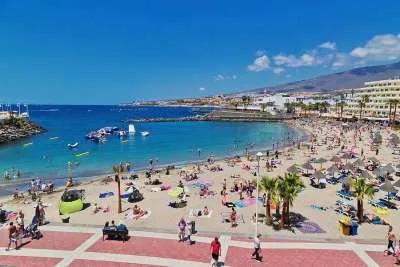
A slight drop in temperatures and light winds in the Canary Islands this Thursday


Tenerife Cabildo maintains fire and BBQ ban in recreational areas and outdoors
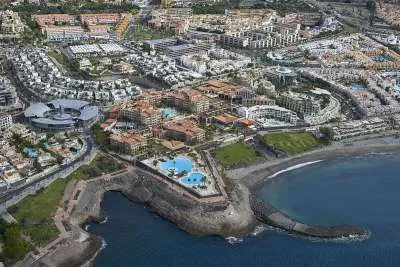
Ritmania Fame Academy Dazzles on International Stage

Marichal: ‘Those who blame tourism for the problems in the Canary Islands are wrong’

25-year-old tourist dies on a beach in Costa Adeje

Coach catches fire next to the TF-1 motorway in the south of Tenerife

Growing concern for the six activists on hunger strike in Tenerife

152 African immigrants in four boats rescued in the last few hours in the Canaries

The Psychology of Crypto Investment: Mastering Your Emotions

VIDEO: British tourist seriously injured jumping into one of Tenerife's most dangerous rock pools

VIDEO: Machete attack in the Canary Islands caught on CCTV

ASCAV supports a Tourist Tax to alleviate the ‘Tourism Problem’

Holiday home owners anticipate a surge in bookings this summer in the Canary Islands

From HODL to Yield: Optimizing Returns on Your Crypto Investments

The Canary Islands remain on pre-alert for high temperatures
Tenerife Gran Canaria Lanzarote Fuerteventura La Palma La Gomera El Hierro
- La Graciosa
- Fuerteventura
- Gran Canaria
- Means of Transport
- Natural Parks
- Theme Parks
- Aquatic and Theme Parks
- Hotels in Tenerife
- Hotels in Gran Canaria
- Hoteles de Fuerteventura
- Hotels in Lanzarote
- Hotels in La Palma
- Hotels in La Gomera
- Hotels in El Hierro
- Apartaments
- Canary Islands
- Prepare your holidays
- What to see
- Canary Food and Drinks
- Privacy and Policy
Taxes and tips in the Canary Islands
Discover how much you should give in tips and how much taxes will you pay in the canary islands..
Likewise other regions in Spain, in the Canary Islands everyone should pay taxes for what its buying.
Taxes in the Canary islands:
Also known as I.G.I.C. (Indirect General Canary Taxes) is generally 7% in restaurants, hotels, shops (excluding clothes and shoes which is 3%) and in car rental and jewelry which is 13,5%.
Should I tip in the Canary Islands?
Tips are not mandatory as every establishment in Spain includes the service price. Tipping is usual in bars, restaurants, hotels and taxis depending on the client’s generosity.
Find out more information you need to know before your trip to the Canary Islands :
- Accommodation
- Communication
- Festivities
- Smoking and Drinking
- How to dress
- Health Assistance
- The Canary Islands Flag
- Tips and Taxes
- Disabled Facilities
Flight Offers:
Compare flight offers and book in advance to save some money.
Book now your Hotel or Apartment:
- Hotels in Arona
- Hotels in Costa Adeje
- Accommodation in Los Cristianos
- Accommodation in Santa Cruz de Tenerife
- Hotels in Las Palmas de Gran Canaria
- Hotels in Maspalomas
- Accommodation in Playa del Inglés
- Hotels in Corralejo
- Apartaments in Costa Teguise
- Hotels in Valle Gran Rey
Find the largest offer in car rental for your holidays:
Tourist tax: These are the destinations you’ll have to pay to enter
By Olivia Morelli

The concept of tourist tax isn’t a new one. City tax has long been the norm for many countries in Europe such as Greece , Spain and Germany , and hotel tax is standard across many destinations, including US states. The impact of Covid on the travel industry was severe – hotels, restaurants and hospitality venues closed, people that relied on tourism for their livelihoods suddenly faced huge losses, and money that the government relied on for development and maintenance was depleted. As a result, while travel continues to normalise post-pandemic, many countries have decided to implement a tourist tax to boost economies and reinvigorate locals. Below, we take a look at what exactly tourist tax is, and which countries are introducing the measure for 2024.

What is tourist tax?
Originally, tourist tax was introduced by certain governments with the aim of tempering over-tourism and generating income from large numbers of travellers entering the destination. Bhutan, for example, has asked tourists to pay a significant sum of money to enter since it opened to travellers in 1974. The country uses the tax (called the Daily Sustainable Development Fee) in an attempt to preserve the country’s natural, undisturbed beauty and to protect traditional Buddhist culture. Similarly, Barcelona uses the city’s tourist tax to fund construction and development projects locally – typically it is around €5 per day per person. Most tourist taxes are added onto the cost of your accommodation.

Which destinations will begin imposing tourist taxes in 2024?
- In Italy , Venice will begin asking charging tourists a fee in 2024
- The Indonesian government has announced that a tourist tax will be imposed on travellers visiting Bali from 14 February 2024
- In 2024, the UK is imposing a new system called an Electronic Travel Authorisation (ETA), whereby visitors from the US, Europe, Australia and Canada will be required to apply for permission and pay to enter the country .
- Next year, the EU will begin implementing a new tourist visa, whereby non-EU citizens travelling from outside the Schengen zone will need to fill out a €7 application to enter the country.

Which destinations currently impose tourist tax?
The below destinations impose tourist taxes on travellers entering the country, but the amount of tax charged changes frequently. We have included some guidance on projected costs, but make sure you check with your accommodation or the tourism board for each destination before travelling to be sure how much you need to pay.
- Austria : the cost of tourist tax is typically added onto your accommodation bill, and is around 3.2 per cent in Vienna .
- Belgium : in Brussels tourist tax is mainly below £3.50, and is added onto your accommodation bill, but it varies from city to city.
- Bhutan : since September 2023, the daily Sustainable Development Fee in Bhutan has dropped to £157 for adults.
- Bulgaria : tourist tax in Bulgaria varies on destination and hotel standard, but it is usually below £1.30.
- Caribbean Islands: most of the Caribbean islands charge tourist tax, and the price ranges depending on the island – in St Lucia , for example, it is around 8 per cent, whereas in the Dominican Republic it is 18 per cent.
- Croatia : the cost of tourist tax in Croatia depends on the season you are travelling in and where you are staying, but it ranges from 20p to 70p per day.
- Czech Republic: in Prague, tourist tax typically costs around CZK 50 per night (around £1.71).
- France : here tourist tax is based on a municipal rate, but standard cost is between 20p and £4.30 per night.
- Germany : it varies from city to city – in Berlin, the standard tourist tax is five per cent of the accommodation price.
- Greece : the price you pay in Greece depends on the standard and size of your accommodation. It shouldn’t be more than £3.50 per night.
- Hungary : travellers should expect to pay four per cent of the cost of accommodation per night.
- Indonesia: from Wednesday 14 February 2024, travellers will have to pay 150,000 rupiah (£7.60) upon entering Bali.
- Italy : depending on the city, tourist tax can be somewhere between 80p and £6.10 per night.
- Japan : if you’re travelling to Japan , expect to pay 1,000 yen (about £5.50) in tourist tax.
- Malaysia : in 2023, the cost of tourist tax across Malaysia is £1.68 per night.
- New Zealand: travellers visiting New Zealand have to pay an International Visitor Conservation and Tourism Levy (IVL) which costs $35 NZD (£16.80)
- Portugal : this country charges tourist tax in 13 cities, including Lisbon and Porto . The cost is £1.75 per night.
- The Netherlands : Amsterdam is one of Europe’s most expensive places for tourist tax – currently the rate states at seven per cent of accommodation price plus a flat rate of €3 (£2.61)per person per night
- Switzerland : the price of tourist tax here varies depending on the destination, and it ranges from about CHF 2 (£1.81) to CHF 7 (£6.34) per person per night.
- Slovenia : again, the rate changes from destination to destination (it is higher in cities than in more rural areas), but generally the cost is around €3 (£2.61)
- Spain : several cities in Spain have recently decided to raise the price of tourist tax, and other cities are in discussions about following suit. In Barcelona , the fee is €4 (£3.48), whereas in the Balearic Islands the fee is between €1 (87p).
- USA: when travelling to the USA from the UK, visitors need to apply for an ESTA (Electronic System for Travel Authorisation), which is a type of visa allowing travellers to stay in the country for up to 90 stays. It is valid for two years. The cost of an ESTA is $21 (about £17)
More pieces from Condé Nast Traveller
Sign up to The Daily for our editors' picks of the latest and greatest in travel
Expert advice on how to avoid getting hit by extra costs when flying
The ultimate guide to getting through airport security quickly
The real reason you can’t use your phone on a plane
How to pop your ears on a plane : 9 tricks for relieving ear pressure, according to medical experts
- Tenerife Tourism
- Tenerife Hotels
- Tenerife Bed and Breakfast
- Tenerife Vacation Rentals
- Flights to Tenerife
- Tenerife Restaurants
- Things to Do in Tenerife
- Tenerife Travel Forum
- Tenerife Photos
- Tenerife Map
- All Tenerife Hotels
- Tenerife Hotel Deals
- Last Minute Hotels in Tenerife
- Things to Do
- Restaurants
- Vacation Rentals
- Travel Stories
- Rental Cars
- Add a Place
- Travel Forum
- Travelers' Choice
- Help Center
Tourist tax - Tenerife Forum
- Europe
- Spain
- Canary Islands
- Tenerife
Tourist tax
- United States Forums
- Europe Forums
- Canada Forums
- Asia Forums
- Central America Forums
- Africa Forums
- Caribbean Forums
- Mexico Forums
- South Pacific Forums
- South America Forums
- Middle East Forums
- Honeymoons and Romance
- Business Travel
- Train Travel
- Traveling With Disabilities
- Tripadvisor Support
- Solo Travel
- Bargain Travel
- Timeshares / Vacation Rentals
- Canary Islands forums
- Tenerife forum

No there is not.
No tourist tax in the canaries. Yet.
This topic has been closed to new posts due to inactivity.
- Aircraft Noise 5:10 pm
- Are sandals suitable for Tenerife? 3:48 pm
- Mediterranean Palace refurb 11:09 am
- Breakfast/lunch etc 9:04 am
- Tenerife taxi today
- The Sax Rock Bar today
- Airport Transfer yesterday
- Dialysis tenerife yesterday
- Proof of £97 a day canary islands yesterday
- Pueblo Torviscas yesterday
- Are children allowed in pubs/bars yesterday
- Traditional restaurants yesterday
- Trouble yesterday
- Protests in Tenerife yesterday
- Weather in Tenerife in February 3 replies
- Where to stay in Tenerife? 2 replies
- What is the best part of Tenerife 4 replies
- Which island for best weather in November? 20 replies
- Looking for a nice beach front hotel ?? 4 replies
- tenerife at christmas 9 replies
- Best area 12 replies
- Drink prices. your view 10 replies
- Still looking 12 replies
- gay bars in south 32 replies
Tenerife Hotels and Places to Stay
- List of Medical facilities and practitioners in Tenerife
- Where are the Hospitals and Clinics in South Tenerife ?
- Can I swim with Dolphins at Aqualand

Tenerife Tax free zone (Canary Islands) – ZEC SPAIN

The Canary Islands are globally renowned for their stunning landscapes and temperate climate throughout the year. However, these islands offer much more than that, including attractive tax benefits with the canary islands special zone.
One of the reasons why many people choose to live in the Canary Islands is the exceptional quality of life they offer. With pleasant weather year-round, a wide range of outdoor activities, and a relaxed culture, this is a place where life is enjoyed to the fullest.
Another advantage of living in the Canary Islands is the ease of exploring other islands in the archipelago and nearby destinations. From here, you can embark on adventures to amazing places without long flights or complex procedures.
The Canary Islands also offer unique business opportunities, especially in sectors such as tourism, renewable energy, and technology. The infrastructure, connectivity, and favorable business environment make it an ideal place to start or expand your company.
Indice del artículo
Why do companies choose the Tenerife Tax Free zone?
The Canary Islands are globally renowned for their stunning landscapes and temperate climate throughout the year. However, these islands offer much more than that, including attractive tax benefits.
Why should you consider the Canary Islands?
The Canary Islands offer an unparalleled lifestyle where work and leisure harmoniously blend. You can enjoy a mild climate, outdoor activities, and a vibrant cultural scene while maintaining a reduced tax burden.
A Paradise for Businesses and a Thriving Territory
Canarias is an exceptional destination to live due to its appeal to digital nomads or ‘remote workers.’ The investment and strategy implemented by the Ministry of Tourism, Industry, and Commerce, supported by Tourism of the Canary Islands, have positioned the archipelago as an ideal place for this niche segment.
The successful attraction of remote workers to the Canary Islands is due to several key factors:
- Ideal Climate: The Canary Islands have been promoted as the ‘office with the best climate in the world,’ attracting digital nomads from around the globe. The pleasant and consistent climate is a major draw for those seeking to work in a pleasant environment.
- Exponential Growth: The promotional strategy has exceeded expectations, with the arrival of remote workers surpassing the annual forecast in just one year. This demonstrates the high level of interest the destination generates.
- Tourism Diversification: The Canary Islands have diversified their tourism model to reduce dependence on more volatile segments. Investment in three long-stay tourism segments, including remote workers, has contributed to this diversification.
- Private Sector Involvement: The private sector has responded positively by adapting accommodations and developing coworking and coliving spaces to meet the needs of remote workers.
- Specialized Events: The organization of events like Pueblos Remotos and Thriving Nomads demonstrates the commitment of the Canary Islands to promote practices and strategies that benefit businesses and freelancers embracing remote work.
- Access to Key Markets: The strategic location of the Canary Islands and the availability of direct flights, especially to the United States, position it favorably to attract remote workers from high-income markets.
In summary, the Canary Islands have become an attractive destination to live thanks to its exceptional climate, commitment to remote work, investment in infrastructure and services for remote workers, and tourism diversification. These qualities make the archipelago a popular choice for those seeking to combine a high quality of life with professional opportunities. Now, let’s move on to tax matters.
Taxes for companies in the Canary Islands, the ZEC zone
If Spain is one of the countries with a high level of aggressiveness in tax matters, you may be wondering: How is it possible to pay a 4% tax rate instead of the standard 25% in Spain?
To fully understand the Canary Islands Special Zone (ZEC), we must first decipher its meaning and purpose. While it may sound somewhat mysterious, it is actually a quite important concept in the field of international taxation. But why should it matter to you?
What is the Canary Islands Special Zone (ZEC)?
The Canary Islands Special Zone (ZEC) is a unique tax tool in the context of Spain and the European Union. It is a specific geographical area in the Canary Islands that enjoys special tax benefits with the aim of promoting investment and economic development in the region.
Tax Benefits of the ZEC
One of the main attractions of the ZEC is the tax benefits it offers to companies that establish themselves in this area. These benefits include:
- Reduced Taxes: Companies operating in the ZEC enjoy a significantly reduced corporate tax rate, which can result in considerable tax savings.
- VAT Exemption: In the ZEC, companies can benefit from the exemption of Value Added Tax (VAT) in their commercial operations.
- Simplified Requirements: The requirements for establishing and operating a company in the ZEC are less burdensome compared to other areas, making it easier for businesses to enter and expand.
REQUIREMENTS TO ACCESS THE 4% CORPORATE TAX
Now that we understand the benefits, it is important to delve into taxes in the ZEC. How are they applied, and what should you know about them?
So, when a company registers in the Canary Islands, it does not automatically mean that it will be taxed at 4%. This tax rate is a privilege and is granted only to companies that meet the requirements to obtain the special status called ZEC.
A company wishing to pay this rate must meet the following criteria:
- It must be a separate entity, so tax authorities know exactly who is responsible for taxes.
- It must operate in a non-excluded business area. There are some types of business areas that would not qualify for ZEC status. However, if the business is not related to tourism, retail, or entertainment, then there won’t be a problem. As this program is designed to attract investments and business development in areas that need support, the authorities have already defined the sectors that are developed in the Canary Islands and do not require additional tax incentives.
- At least one of the company directors must be a resident in the Canary Islands. The good news is that you don’t need a shareholder to move to the Canary Islands. The company can simply hire someone as a director who is physically in the Canary Islands and pay them a regular salary.
- There is also a minimum investment requirement. The amount varies from island to island, ranging from EUR 50,000 to EUR 100,000. The more developed the island, the higher the amount of investment. The investment can include anything related to the business. For example, you can buy real estate, use it as the company’s office, and that would be considered an investment. Just keep in mind that if you buy an apartment, use it for personal needs, and present it as an investment, tax authorities will not accept it.
- And the last requirement is that, within 6 months after registering the ZEC company, you must employ at least 3 to 5 local employees at a minimum. The amount varies again depending on the island. 3 to 5 is the minimum amount, but it can be more. What does ‘local employees’ mean? Local does not necessarily mean they have to be born there, just that they will physically reside in the Canary Islands.
- If at any time at least one of the requirements is no longer met, the ZEC status will be revoked, and standard Spanish tax rates will apply.
Advantage of VAT in the Canary Islands
And the final benefit of having a registered company in the Canary Islands is the VAT (Value Added Tax). The EU has a common VAT system for all EU countries, and the agreed minimum VAT rate for the EU is 15%. However, even though Spain is part of this common EU system, the Canary Islands are not. Therefore, the rate there is only 7%, the lowest in the entire EU.
Which business sectors can take advantage of this investment shift?
The exemption applies to new business projects in three situations:
- Companies with “knowledge-intensive activity” : These are entities that meet the condition of being an innovative small and medium-sized enterprise (SME) or whose activity focuses on innovation.
- Companies engaged in “activities related to priority sectors”: These sectors are considered priorities for the development of the Canary Islands due to their significant growth potential. They include the audiovisual field, video games, technology, and science.
- Companies with “human resource-intensive activities” that increase their hiring above the minimum requirements (5 and 3 employees, depending on the island). In this case, the minimum investment will be reduced proportionally based on the number of employees hired.
How many employees must be hired?
Both knowledge-intensive companies and those operating in priority sectors must create at least six jobs in the capital islands and four in the non-capital islands. This represents one more job than the minimum requirement.
Taxation in the Canary Islands: Other benefits of the ZEC
In addition to the aforementioned tax advantages, the Canary Islands Special Zone (ZEC) offers benefits for other direct and indirect taxes, such as Non-Resident Income Tax (IRNR), the Canary Islands General Indirect Tax (IGIC), and Property Transfer and Documented Legal Acts Tax.
- Non-Resident Income Tax (IRNR): Under the ZEC, certain items, such as dividends distributed by ZEC entity subsidiaries to their parent companies in other countries, interest and other yields from the transfer of own capital, and capital gains from movable property obtained without a permanent establishment, are exempt from withholding tax in Spain. This exemption applies to income earned by residents in any state when paid by a ZEC entity and arising from operations carried out within the ZEC.
- Property Transfer and Documented Legal Acts Tax: ZEC entities are exempt from taxation in this tax for cases such as the acquisition of assets and rights intended for the development of ZEC entity activities in the ZEC, corporate operations carried out by ZEC entities (except dissolution), and documented legal acts related to operations carried out in the ZEC.
- Canary Islands General Indirect Tax (IGIC): Under the ZEC regime, deliveries of goods and services made between ZEC entities are exempt from IGIC taxation, as well as imports of goods made by them.
It is important to note that the ZEC is compatible with other tax incentives under the Canary Islands Economic and Tax Regime (REF), such as the Reserve for Investments in the Canary Islands (RIC) and the deduction for new fixed assets (DIC).
What activities are allowed within the framework of the Canary Islands Special Zone?
- architecture, design, public relations, marketing, communication, etc.
- Audiovisual: Film production, series, animation, IT consulting, web hosting, web portals, etc.
- Maritime sector: Repair, assembly, maintenance, transportation, logistics, supplies, recreational boat construction, inspection and control, among others.
- Transport, logistics, and distribution: Warehousing, storage, cargo handling, postal activities, etc.
- Tourism: Tour operators, travel agencies, reservation and excursion organization services, theme parks, manufacturing of tourist products for hotels and restaurants, maintenance and cleaning of hotel and leisure complexes, private security activities, etc.
- ICT (Information and Communication Technologies): Software development, digital services, telecommunications, network providers, GPS location, technological platforms, etc.
The Canary Islands Special Zone (ZEC) offers companies a unique opportunity to legally reduce their tax burden in an environment with high taxes in Spain. This special tax regime allows companies to enjoy a corporate tax rate of 4%, compared to the standard 25% in Spain. However, to benefit from these tax advantages, companies must meet certain requirements, such as operating in specific sectors, having at least one director residing in the Canary Islands, and complying with investment and local employment requirements.
In addition to the tax benefits, the Canary Islands offer an exceptional quality of life with pleasant year-round weather, a wide range of outdoor activities, and a relaxed culture. This has attracted remote workers and digital nomads from around the world to settle in the region.
The diversity of sectors that can take advantage of the benefits of the ZEC, including business services, the audiovisual industry, the maritime sector, transportation, logistics, tourism, and technology, makes the Canary Islands an attractive destination for investors and entrepreneurs.
If you want more information, do not hesitate to contact us here
- What is the Special Canary Zone (ZEC)? The Special Canary Zone (ZEC) is a specific geographical area in the Canary Islands that enjoys special tax benefits with the aim of promoting investment and economic development in the region.
- What are the tax benefits of the ZEC for companies? The ZEC allows companies operating in this area to enjoy a corporate tax rate of 4%, compared to the standard 25% in Spain. Additionally, it offers exemptions in other direct and indirect taxes, such as the Value Added Tax (VAT) and the Tax on Property Transfers and Documented Legal Acts.
- What requirements must companies meet to benefit from the 4% corporate tax rate? To obtain ZEC status and pay a 4% corporate tax, a company must meet requirements such as operating in specific sectors, having at least one director residing in the Canary Islands, meeting minimum investment requirements, and employing a minimum number of local employees.
- How is the Value Added Tax (VAT) applied in the Canary Islands? Unlike most regions in the European Union that apply a minimum VAT rate of 15%, in the Canary Islands, the VAT rate is 7%, the lowest in the EU. This benefits companies operating in the ZEC and consumers in the region.
- Which business sectors can take advantage of the ZEC benefits? The ZEC offers opportunities in various sectors, including business services, audiovisual industry, maritime sector, transportation, logistics, tourism, and technology. Sectors considered “knowledge-intensive activities” or “activities related to priority sectors” can benefit.
- What is the minimum investment required to obtain ZEC status? The minimum investment varies depending on the island where the company is established, ranging from 50,000 EUR to 100,000 EUR. The more developed the island, the higher the required investment.
- How many local employees must be hired to meet ZEC requirements? Companies operating in the ZEC must employ at least 3 to 5 local employees minimum, depending on the island. Local employees do not necessarily need to be born in the Canary Islands; they just need to physically reside there.
- How is the investment calculated in the ZEC? Investment can include various business-related elements, such as the acquisition of properties for business use. The tax authorities in the Canary Islands have specific criteria to determine which investments are eligible.
- What additional advantages does the ZEC offer in terms of other direct and indirect taxes? In addition to the reduction in corporate tax and VAT, the ZEC offers exemptions in other taxes such as the Tax on Property Transfers and Documented Legal Acts, as well as benefits in the Non-Resident Income Tax (IRNR).
- What makes the Canary Islands attractive to digital nomads and remote workers? The Canary Islands are attractive to digital nomads due to their pleasant climate, exponential growth of remote workers, diversification of tourism, adaptation of the private sector with workspaces, and specialized events. Additionally, the strategic location and access to key markets contribute to their appeal to high-income remote workers.
Don’t forget to visit our Youtube channel for more information.
ACCEDE A NUESTRO EBOOK GRATUITO
EL ``A B C´´ DE LA FISCALIDAD INTERNACIONAL
ESTRATEGIAS PARA NO PAGAR IMPUESTOS
¡No hacemos spam! Lee nuestra política de privacidad para obtener más información.
Ah, por cierto. Revisa tu bandeja de entrada o la carpeta de spam para confirmar tu suscripción.
It may interest you

Analyzing the reasons for becoming a tax exile in Spain and its impact on the tax system

10 Free Zones in the United Arab Emirates to set up your business and pay very little tax (or 0% tax)

MY FINANCIAL DIVERSIFICATION STRATEGY WITH OFFSHORE BANK ACCOUNTS AND CRYPTOCURRENCIES
Information.
- Legal warning
- Privacy Policy
- Cookies policy
© 2024 Nomad Tax . All rights reserved
- Privacy overview
- Strictly necessary cookies
- Third party cookies
This website uses cookies so that we can offer you the best possible user experience. Cookie information is stored in your browser and performs functions such as recognizing you when you return to our website or helping our team understand which sections of the website you find most interesting and useful.
Strictly necessary cookies must always be enabled so that we can save your cookie setting preferences.
This website uses Google Analytics to collect anonymous information such as the number of visitors to the site, or the most popular pages.
Leaving this cookie active allows us to improve our website.
Please enable strictly necessary cookies first so we can save your preferences!
What is a tourist tax? Fees for foreign tourists at hot summer destinations
Many countries across Europe have implemented fees for foreign visitors.
Barcelona is among the top 20 summer destinations of 2024, and for anyone planning to visit the bustling Mediterranean metropolis known for its art and architecture, or other tourist-filled hotspots during high-season, there may be some additional costs to consider.
Many countries across Europe including Spain, Greece, and Germany have implemented fees for foreign visitors to help support local costs of doing business, especially during the busy summer months. It's similar to that of a hotel occupancy tax that American travelers may be more familiar with for domestic stays.

MORE: The best luggage for kids for summer travel and beyond
What is a tourist tax.
"Tourist taxes are a rapidly growing trend," Clint Henderson, Managing Editor at The Points Guy, told "Good Morning America," adding that the fee system is increasingly popular "because it’s an easy way for cities to raise revenues without taxing local citizens. It’s also more politically palatable and it has the added benefit of helping to deal with over-tourism."
Henderson also pointed out that "Crowding at especially popular spots made famous by Instagram are simply out of control."

"Locals in places like Venice, [Italy] and Maui are also getting more vocal about problematic tourists," he said. "We think you’ll only see this trend of tourist taxes spread. Look for action from places like Hawaii in the future, which has been considering some kind of tax for a few years now."
The rural town of La Salut, located just outside Barcelona and best known for Park Güell mosaic-covered buildings, tapas bars and seafood restaurants, was recently removed from Google and Apple maps, Yahoo first reported , after being inundated with tourists taking over the locals' main bus route.
What to know about tourist fees abroad this summer
Henderson said tourism taxes "are not yet that widespread," with the caveat that "local taxes and fees are very common and often hidden in your hotel bill."
His tip? "Google your destination to see about potential fees before you go."
"Many hotels are now listing local taxes and fees in their online pricing, but you can always call ahead of time to make sure you won’t be facing additional 'destination' or 'resort' fees," he suggested.
Summer vacation destinations with a tourist tax
There are some newcomers adding a tourist tax for the first time this summer, and other nations increasing percentages that people will be expected to pay.
"Galapagos National Park is charging $200 as of August 1 to visit. Bhutan charges $100 per day. Wales and Hawaii are among the locations now considering tourist taxes," Henderson listed.

MORE: Try Before You Buy: The best neck pillows for travel
The Barcelona municipality recently increased its tourist tax from 2.75 euros to 3.25 euros on April 1.
The tourist tax for the Olympics host nation is based on a municipal rate. Typically the cost has been under $6 per night, but starting in January officials increased the visitor fee up to $17, depending on the hotel type.
Earlier this year Mayor of Seville, José Luis Sanz, announced on X plans to "close the Plaza de España and charge tourists to finance its conservation and guarantee its safety."
Sanz shared a video along with his post that showed missing tiles, damaged facades and street vendors occupying alcoves and stairs.
The southern Spanish city will now charge visitors to enter the historic area that has been at risk of irreversible damage to its famed tile floors, bridges and towers.

Earlier this year, coastal city known for it's canals, blown glass and close proximity to the heart of Italy's Prosecco region implemented a fee of 5 euro per day tripper through a new reservation system.
Travelers can download an app to pay and attain a QR code which will be shown to enter the city as a visitor.
"It is not a revolution, but the first step of a path that regulates the access of daily visitors. An experiment that aims to improve the liveability of the city, who lives there and who works there. We will carry it forward with great humility and with the awareness that there may be problems," the Mayor of Venice Luigi Brugnaro stated on X in the announcement.
"The margins of error are wide, but we are ready, with humility and courage, to make all the changes that will serve to improve the procedure. Venice is the first city in the world to implement this path, which can be an example for other fragile and delicate cities that must be safeguarded," he continued.
Related Topics
Top stories.

5 big takeaways from Day 3 of Trump's hush money trial

USC valedictorian speaks out after school canceled her commencement speech
- Apr 18, 2:21 PM

Bear cub recovering after being dropped by bystander who picked it up, took photos
- 4 hours ago

Judge rejects Trump effort to pause Jan. 6 civil lawsuits while criminal case ongoing

Britain's Prince Harry formally confirms he is now a US resident
- Apr 18, 3:15 PM
ABC News Live
24/7 coverage of breaking news and live events
Tenerife has significant tax advantages within Spain and the European Union. Its differentiated economic and fiscal system, permanently included in the legal framework of the European Union, guarantees exceptional conditions for investment and trade.
The canary islands special zone (zec).
A reduced corporate income tax rate of 4%, compared to 25% in Spain and 21.30% on average in the European Union.
Canary Islands General Indirect Tax (IGIC)
The mechanism of the IGIC is very similar to VAT of mainland Spain, in which the tax is levied at each stage of the supply chain where value is added. The general rate is 7%, compared to the general Spanish VAT rate of 21%.
The Canary Islands Investment Reserve (RIC)
A deduction of up to 90% on the undistributed profit.
Tenerife free zone
Limited space for storage, handling or transformation of goods, regardless of origin, destination, quantity or nature. It offers advantages in terms of administrative processing, tariffs and taxes, fully compatible with other incentives such as those of the Canary Islands Special Zone (ZEC) or the Canary Islands Investment Reserve (RIC).
Non-resident Income Tax
Taxation at a fixed rate of 24% up to 600,000 euros of taxable base for foreigners displaced to Tenerife for work or as administrators.
Tenerife Guide to Business

- Local government expects law on short lets to pass this year
- Canaries plan to enlist police to enforce new rules
- Locals, hotels angered by spread of holiday home listings
- Homeowners' association says law would end most rentals

MADRID PLANS NEW HOLIDAY HOME REGULATIONS
Sitting empty.
Coming soon: Get the latest news and expert analysis about the state of the global economy with Reuters Econ World. Sign up here.
Reporting by Corina Pons; additional reporting by Dominique Vidalon and Andrei Khalip; editing by Charlie Devereux and Philippa Fletcher
Our Standards: The Thomson Reuters Trust Principles. New Tab , opens new tab

Thomson Reuters
Corina is a Madrid-based business reporter focusing on coverage of retail, infrastructure and tourism including some of Spain's biggest companies like Inditex and Ferrovial. She was previously a senior correspondent in Venezuela, where she reported the Chavez and later Maduro government's efforts to retain power and the effects on the economy.

World Chevron

Ukraine air defense: G7 ministers seeking urgent support
Ukraine warned foreign ministers from the Group of Seven (G7) major powers on Thursday they had to change strategy if they wanted Kyiv to withstand increasingly destructive Russian air assaults.

- Gran Canaria
- Fuerteventura
- Tenerife - Best Places to stay
- Gran Canaria - Top Places to stay
- Lanzarote - Best Accommodation
- Fuerteventura - Best Places to Stay
- La Gomera - Where to stay
- La Palma - Best Accommodation
- El Hierro - Best Areas To Stay
- Tenerife weather
- Gran Canaria weather
- Lanzarote weather
- Fuerteventura weather
- La Palma weather
- La Gomera weather
- Tenerife Events
- Gran Canaria Events
- Lanzarote Events
- Fuerteventura Events
- La Palma Events
- La Gomera Events
- El Hierro Events
- Tenerife Attractions
- Gran Canaria Attractions
- Lanzarote Attractions
- Fuerteventura Attractions
- Tenerife Tours
- Gran Canaria Tours
- Lanzarote Tours
- Fuerteventura Tours
IGIC tax in the Canary Islands - What is it?

Have you ever wondered what the 7% IGIC tax is on when you've got your restaurant check in the Canary Islands?
What is IGIC in the Canary Islands?
We get this question often, so here is the answer: IGIC stands for "Impuesto General Indirecto Canario," which translates to the General Indirect Canary Islands Tax.
IGIC is a value-added tax (VAT) or consumption tax that applies in the Canary Islands, an autonomous community of Spain. IGIC is the equivalent of VAT (IVA in Spanish) that is applied in other parts of Spain and the European Union, but it is lower than VAT usually is.
The IGIC tax rate can vary depending on the type of goods or services being taxed.
- General Rate: The standard rate is 7%.
- Reduced Rate: A reduced rate of 3% is applied to certain specific goods and services
- Super-Reduced Rate: A super-reduced rate of 0% applies to a very limited number of essential items, such as certain medicines.
Note for visitors: the IGIC on your restaurant check is not service tax, it's simply the equivalent of VAT
As a tourist visiting the Canary Islands, you will most often see the IGIC tax on your restaurant check, in the amount of 7%. This 7% tax that you see on your bill is not a service tax added by the restaurant, as some visitors assume, but it is just the IGIC tax (the equivalent of VAT) and it is NOT OPTIONAL to pay.
The IGIC tax applies to the entire Canary Islands archipelago , so you will see it under this name in Tenerife, Gran Canaria, Lanzarote, Fuerteventura, La Palma, La Gomera, El Hierro and La Gracios.
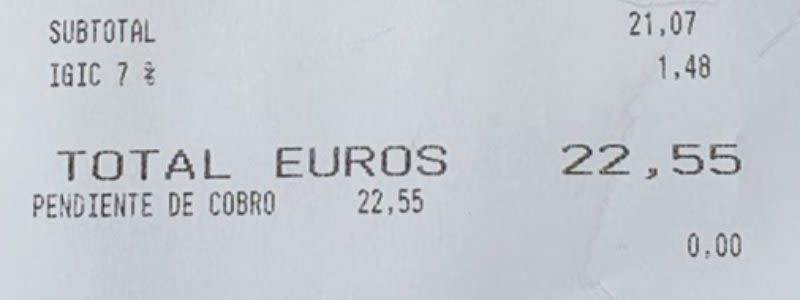
Where are the Canary Islands located? Are they part of Europe or Africa?

Types of Fish in Tenerife and the Canary Islands

Largest Canary Island - Facts about Spain's Canary Islands archipelago

Algal bloom in Tenerife and the Canary Islands in general
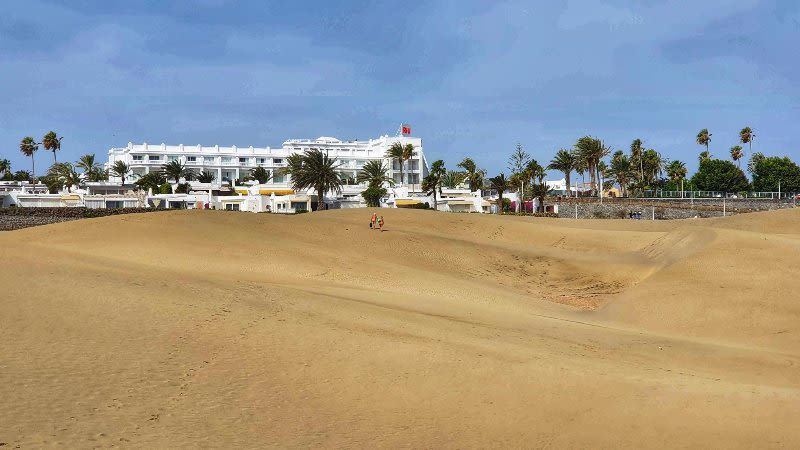
VIDEO: Feel good music with a view of Maspalomas dunes

Are there sharks in the Canary Islands?


StarsInsider
Countries where you have to pay to be a tourist
Posted: April 17, 2024 | Last updated: April 18, 2024

Countries where you pay to be a tourist
If you've traveled, you've likely paid a tourist tax before. However, you may have never noticed it, as it's often worked into airline tickets or the taxes you pay at your accommodation. Originally, tourist tax was introduced by certain governments with the aim of tempering over-tourism and generating income from large numbers of travelers entering the destination. Now, the money from the tax also goes to protecting natural resources and maintaining tourism facilities.
Intrigued? Click on to discover the countries that charge a tourist tax.
You may also like: Cut! Scene editing mistakes in major films

Austria charges visitors a nightly accommodation tax, which differs depending on the province. In Vienna and Salzburg, around 3.2% is added onto your accommodation bill.
Follow us and access great exclusive content every day

In Brussels, tourist tax varies depending on a hotel's size and rating, and can reach €7.50 (US$8.17) per night. However, it varies from city to city.
You may also like: The most poisonous animals on the planet

Bhutan has long been known for its steep tourist taxes and charges. The current daily fee for the majority of visitors is US$100.

Depending on municipality, the tourist tax in Bulgaria ranges from 0.20 lev to 3 lev (US$0.11 to $1.67) a night.
You may also like: The most expensive Oscar dresses of all time
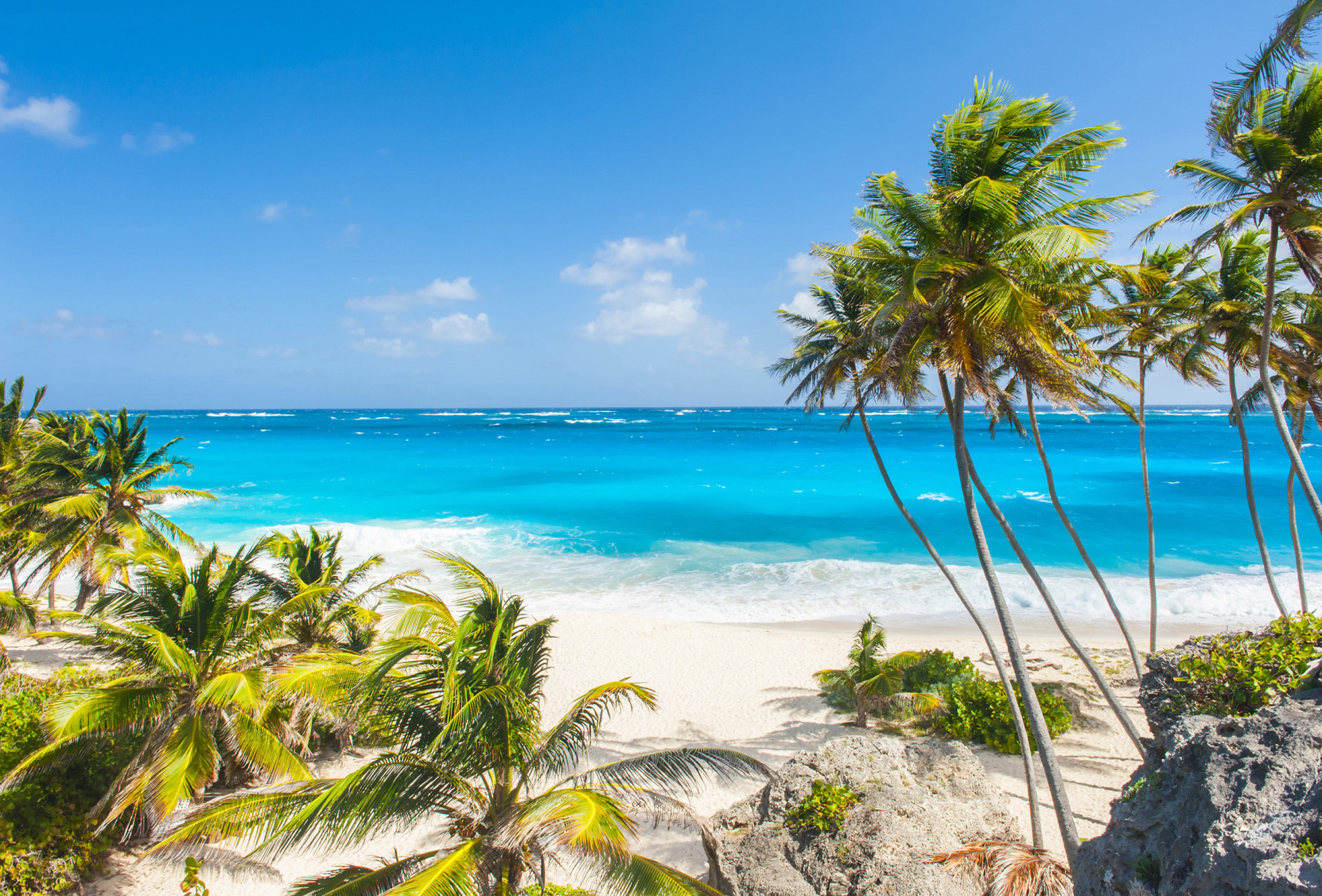
Most of the Caribbean islands charge a tourist tax. The price ranges depending on the island.
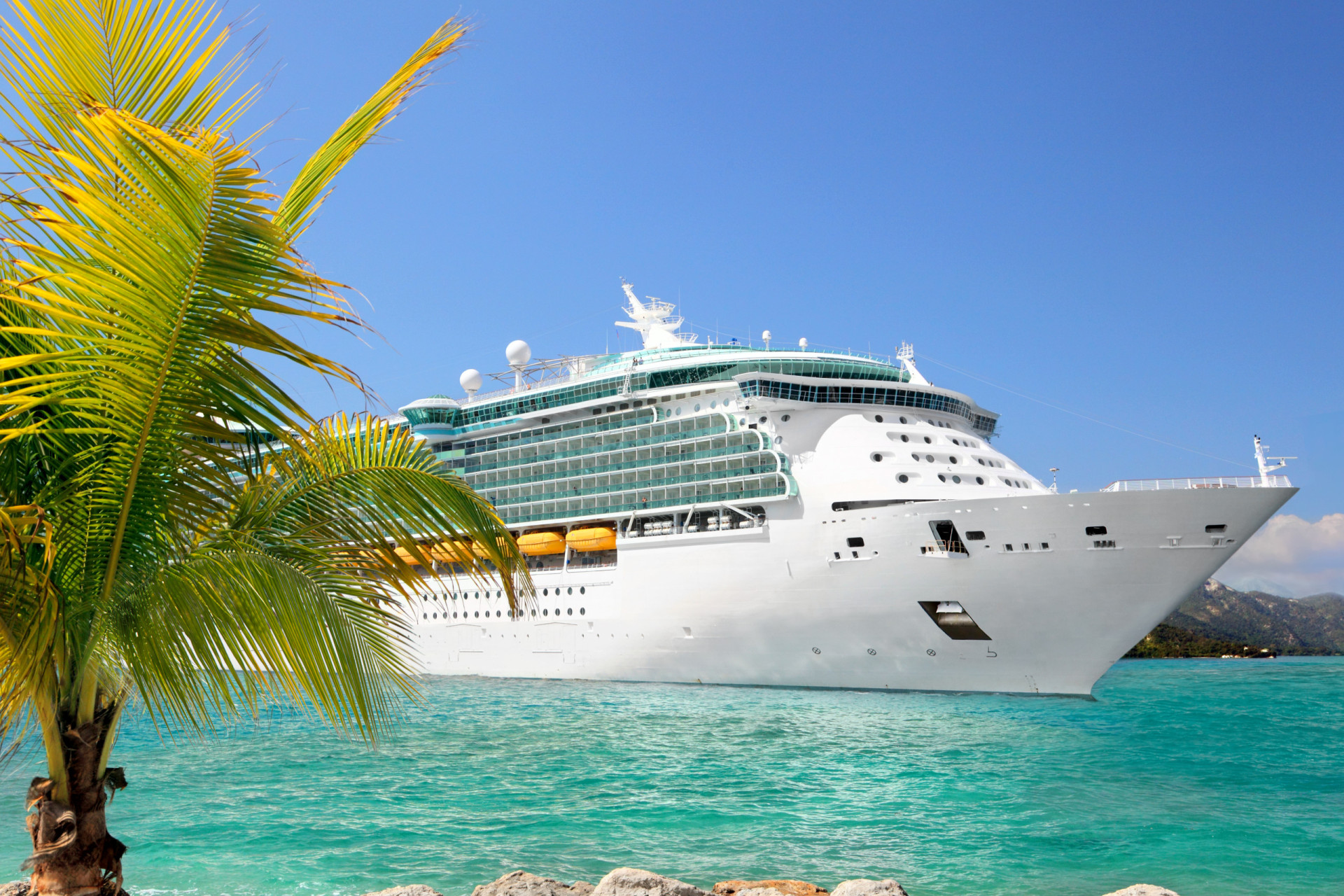
In Saint Lucia, for example, it's around 8%, whereas in the Dominican Republic it's 18%.
You may also like: 30 traditional breakfasts from around the world
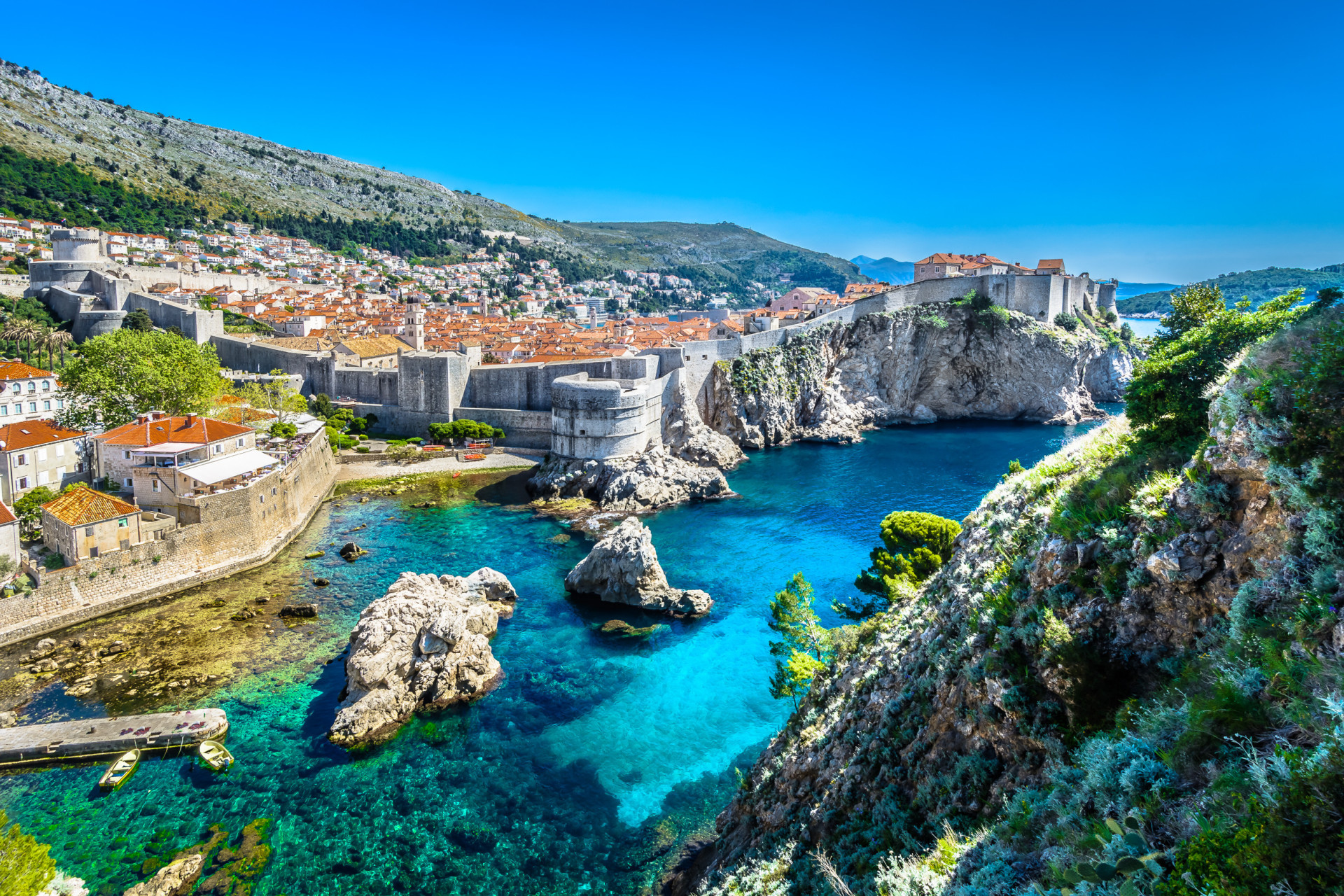
The Croatian tourist tax depends on the season and location, but it's only around €1.33 (US$1.45) per night.

Czech Republic
In Prague, tourist tax typically costs around CZK50 (US$1.97) per night.
You may also like: Celebrities in the same outfits: Who wore it better?

France's taxe de séjour varies depending on city, and tends to be added to your hotel bill per night. The tax is used to maintain tourism infrastructure in popular destinations, such as Paris and Nice.

Germany has a "culture tax," called kulturförderabgabe , and a "bed tax," bettensteuer , in cities including Frankfurt, Hamburg, and Berlin. It tends to be around 5% of your hotel bill.
You may also like: Early 2000s: fashion choices celebs wish they could forget

The price you pay in Greece depends on the standard and size of your accommodation. It tends to be around €4 (US$4.36) per night.

Tourist tax in Hungary only applies in Budapest. Travelers have to pay an extra 4% nightly on the price of their room.
You may also like: Hollywood's hottest hairstyle: long and sleek!

Since January 2024, Iceland has reinstated their tourist tax, which costs US$4.36 per night. It comes after annual tourist numbers reached an estimated 2.3 million per year.

Since February 2024, travelers have to pay 150,000 rupiah (USD$9.59) upon entering Bali.
You may also like: Fascinating facts you didn’t know about Disney parks

Italy's tourist tax varies depending on your location. Rome's fee ranges from €3 to €7 (US$3.40 to $7.94) a night, depending on the type of room. In 2024, Venice started charging day-trippers €5 ($5.40) during high season.

Japan has a 1,000 yen (US$9.25) fee, paid by international visitors as they leave the country.
You may also like: Decoding the symbolism of Freemasonry

Malaysia has a flat-rate tax that it applies to each night you stay, at around US$4.35 a night.

Netherlands
Amsterdam has an overnight tourist tax of 12.5%, making it one of the most expensive in Europe. Furthermore, the city has a tax specific to transit visitors, including people on cruise ships, that charges €14 (US$15.26) per 24-hour period.
You may also like: Bizarre discoveries in the most unexpected places

New Zealand
Travelers visiting New Zealand have to pay an International Visitor Conservation and Tourism Levy (IVL), which costs US$23.94.

Portugal has a low tourist tax of €2 (US$2.18) per night, which applies to all those over the age of 13. It applies in 13 Portuguese municipalities, including Lisbon and Porto.
You may also like: The food industry's biggest scandals

Bucharest charges a tax of 1% of the hotel's room rate. Major cities charge a city tax, and mountain and sea towns charge a rescue tax.

Slovenia bases its tax on location and hotel rating. In larger cities and resorts, such as Ljubljana and Bled, the fee is higher and only around €3 (US$3.40) per night.
You may also like: Unmasking the monsters: actors playing cinematic creatures

Several cities in Spain have recently decided to raise the price of their tourist tax, including Barcelona, where the fee is €4 (US$4.54) per night.

Switzerland
Switzerland's tourist tax also varies depending on the location. A common amount is 2.50 Swiss francs (US$2.50) per night.
You may also like: Tom Cruise: a look at his life, loves, and career

Thailand introduced a tourist tax to the price of flights in April 2022. The fee for all international visitors is 300 baht (US$8.44).

Several states in the US, including California and Texas, have an occupancy tax, which you pay when you book your accommodation.
You may also like: Archie turns 4, and more British royal cuteness

The highest hotel tax in the country is in Houston, where there's a 17% tax on your hotel bill.
Sources: (CN Traveller) (Time Out) (Business Insider)
See also: Where to travel based on your personality type
More for You
If You See Black Residue on Your Cast-Iron Skillet, This Is What It Means
Ketanji Brown Jackson's New Warning To Supreme Court
Colossal prehistoric snake discovered in India
Don’t pack these 9 TSA-prohibited items in your checked baggage
Dr Pepper Has a New Flavor Hitting Shelves Now
Traumatic Disney Movies That Scarred a Generation of Children
Your senses will shut down in a specific order when you’re about to die
Sheamus thought he was retiring from WWE, is now sleeping in the gym after early return
Panned M. Night Shyamalan Sequel Becomes Netflix Hit Five Years Later
CBS Renewal Status Report: ‘The Equalizer', ‘NCIS: Hawai'i', ‘Elsbeth', ‘CSI: Vegas' & ‘So Help Me Todd'
20 random things that are normal in Europe but weird in the U.S.A.
Is It Safe To Grill Frozen Hamburger Patties Straight From The Freezer?
This type of supplement may increase heart disease risk, new study finds
Republicans Suddenly Cancel Multiple Bills
President Biden has canceled plans to refill America's emergency oil reserve — here's why and what it means for you
These Are 10 Smells That Cats Absolutely Hate
The Most Visited Attraction in Every US State
15 pairs of movies with almost the exact same plots
12 Rude Things You Probably Shouldn’t Be Doing at the Grocery Store
Warning Issued as Snowmelt Begins in One State

IMAGES
VIDEO
COMMENTS
The tourist tax in Tenerife is known as the IGIC (Impuesto General Indirecto Canario) and it is a tax that is applied to goods and services, including accommodation, in the Canary Islands. The tax rate for accommodation in Tenerife is currently set at 7%. This means that for every 100 euros spent on accommodation, an additional 7 euros will be ...
No, at the moment you don't need to pay a tourist tax during your stay at a hotel or registered private accommodation in the Canary Islands. This rule applies to all the Canary Islands, meaning that there's no tourist tax in either Tenerife, Gran Canaria, Fuerteventura, Lanzarote, La Gomera, La Palma, El Hierro, or La Graciosa.
In conclusion, while there is no specific tourist tax in Tenerife, visitors should be aware of other taxes and fees that may apply during their stay. The absence of a tourist tax is certainly a positive aspect for travelers, especially those on a tight budget. Nonetheless, being knowledgeable about potential expenses can help ensure a smooth ...
Tourist tax in Tenerife. Tourists traveling to the Canary Islands often hear about the need to pay a tourist tax. However, there are no such fees on Tenerife, unlike on Spain's other island, the Balearic Islands. The tourist tax in Spain was introduced in July 2016. It is an additional fee charged to tourists. The tax is charged for each day ...
Re: Tourist tax. Apr 5, 2024, 10:19 AM. Save. The British tabloids have reported demos supporting a new tax but according to official sources "There is currently no plan to introduce a Canary Islands Tourist Tax. One of the opposition parties has called for one to be introduced, specifically requesting that it be used for "environmental ...
In general, guests staying in the regions of Catalonia have to pay a fee of €3.50 per night when staying in a five-star hotel and €2.25 when staying in rental accommodation. The Balearic Islands: Just like Catalonia, the Balearic Islands (including Ibiza and Majorca) have been applying a tourist tax for all visitors since 2016, and back ...
The tourist tax, also known as ecotax, is applied in several regions of Spain. However, two prominent tourist destinations where this tax is levied are Catalonia and the Balearic Islands. In Catalonia, the implementation of the tourist tax became effective from 2012. Visitors must pay a fee that varies depending on the category of accommodation ...
5 Apr 2024, 15:19. Save. The British tabloids have reported demos supporting a new tax but according to official sources "There is currently no plan to introduce a Canary Islands Tourist Tax. One of the opposition parties has called for one to be introduced, specifically requesting that it be used for "environmental reasons.".
Property Tax. 0.4% - 1.1% (based on cadastral value) Overall, while Tenerife is not entirely tax-free, it offers a favorable tax environment for both individuals and businesses. The tax benefits, exemptions, and incentives make it an attractive destination for those looking to relocate or establish their businesses.
For example, Tenerife, one of the most popular Canary Islands, does not currently have a tourist tax for cruise ship passengers. This means that if you are visiting Tenerife as part of a cruise, you will not have to pay any additional taxes beyond the usual fees associated with your cruise package.
The purpose of the hotel tax is to support the local tourism industry and fund various tourism-related projects and initiatives on the island. The revenue generated from the tax is used to improve infrastructure, preserve the natural environment, and promote Tenerife as a top tourist destination.
Tenerife tax exemption and its relationship with tourism Tenerife, a popular island in the Canary Islands, is known for its stunning landscapes and vibrant tourism industry. Apart from its natural beauty and pleasant climate, one of the main reasons why Tenerife attracts tourists is its unique tax exemption status.
No, tourists traveling to Tenerife do not have to pay a tourist tax. Unlike Spain's other island, the Balearic Islands, Tenerife does not impose any fees on tourists. The introduction of the tourist tax in Spain took place in July 2016.
Commercial electricity bills and tourist/recreational travel (air & maritime) services now attract 3% IGIC. However, household electricity supplies remain 0% rated. ... However, in Tenerife, this tax is also imposed on the resale of a second-hand vehicle. The tax is payable on the declared contract value (or the government tables official value ...
1/10/23, 9:04 AM By Canarian Weekly Business. The new 'tax-free' system that has been approved by the Canary Islands Government that will allow tourists from third countries (including the UK since Brexit) to get a refund of the IGIC on their purchases whilst on holiday from February 23rd, is fraught with deadlines and a minimum spend.
Likewise other regions in Spain, in the Canary Islands everyone should pay taxes for what its buying. Taxes in the Canary islands: Also known as I.G.I.C. (Indirect General Canary Taxes) is generally 7% in restaurants, hotels, shops (excluding clothes and shoes which is 3%) and in car rental and jewelry which is 13,5%. Should I tip in the Canary ...
Malaysia: in 2023, the cost of tourist tax across Malaysia is £1.68 per night. New Zealand: travellers visiting New Zealand have to pay an International Visitor Conservation and Tourism Levy (IVL) which costs $35 NZD (£16.80) Portugal: this country charges tourist tax in 13 cities, including Lisbon and Porto. The cost is £1.75 per night.
The equivalent to VAT in the Canary Islands is the well-known IGIC or Canary Island General Indirect Tax, generally charged at a lower rate. In the case of IGIC, the general rate of tax is just 7% compared to 21% VAT. Since 2000, the islands have had a special low tax rate for businesses operating on the islands. Understanding these advantages ...
H10 Conquistador, Tenerife: "Do we have to pay tourist tax when we arrive. How..." | Check out answers, plus 4,748 reviews and 6,154 candid photos Ranked #12 of 58 hotels in Tenerife and rated 4.5 of 5 at Tripadvisor.
Answer 1 of 3: First visit to Tenerife,,,,,Is there a tourist tax please? If so is it per room or per person? many thanks. Tenerife. Tenerife Tourism Tenerife Hotels Tenerife Bed and Breakfast ... No tourist tax in the canaries. Yet. Report inappropriate content . 3. Re: Tourist tax . Jul 26, 2023, 12:05 AM.
Conclusion. The Canary Islands Special Zone (ZEC) offers companies a unique opportunity to legally reduce their tax burden in an environment with high taxes in Spain. This special tax regime allows companies to enjoy a corporate tax rate of 4%, compared to the standard 25% in Spain.
The Barcelona municipality recently increased its tourist tax from 2.75 euros to 3.25 euros on April 1. Paris. The tourist tax for the Olympics host nation is based on a municipal rate. Typically ...
Taxation at a fixed rate of 24% up to 600,000 euros of taxable base for foreigners displaced to Tenerife for work or as administrators. Tenerife has significant tax advantages within Spain and the European Union.
Zerpa added that tourism has forced up rental prices making it unaffordable for many local residents. "I earn about €900 and live with my partner but the rent is €800 per month.
UK holidaymakers could soon face a new daily charge when visiting the Canary Islands as officials in Lanzarote and Tenerife are reportedly in talks to introduce measures to recoup funds following an influx of tourists. The beloved archipelago, comprising eight main islands, is contemplating the imposition of a tourist tax specifically targeting ...
T ensions have risen in Tenerife as protests take place in days.But Irish bar owners slammed the tourist ban with a three-word message - as demonstrators take to the streets of the Canary Islands ...
An Irish businessman based in Tenerife has said that stopping or protesting against tourism is not the answer to overtourism, ahead of planned demonstrations on the Canary Islands this weekend.
Item 1 of 4 A general view of Las Canteras Beach in Las Palmas de Gran Canaria, Spain, April 13, 2024. REUTERS/Borja Suarez
This 7% tax that you see on your bill is not a service tax added by the restaurant, as some visitors assume, but it is just the IGIC tax (the equivalent of VAT) and it is NOT OPTIONAL to pay. The IGIC tax applies to the entire Canary Islands archipelago , so you will see it under this name in Tenerife, Gran Canaria, Lanzarote, Fuerteventura, La ...
Italy. Italy's tourist tax varies depending on your location. Rome's fee ranges from €3 to €7 (US$3.40 to $7.94) a night, depending on the type of room. In 2024, Venice started charging day ...